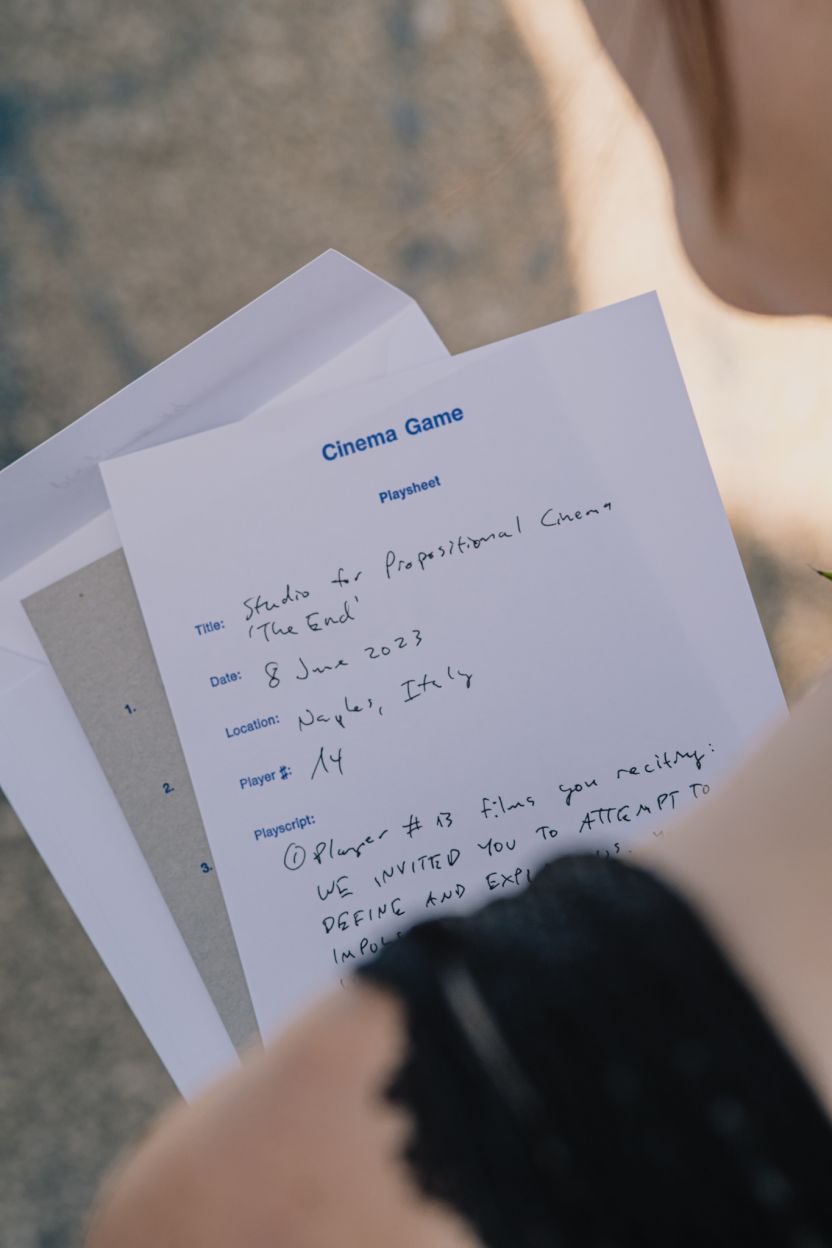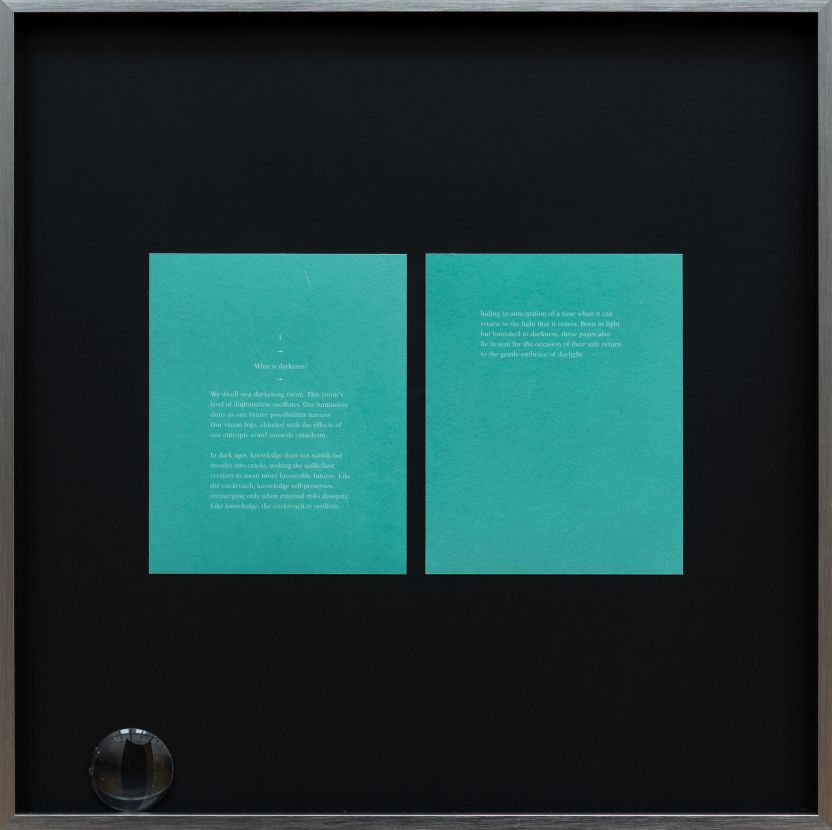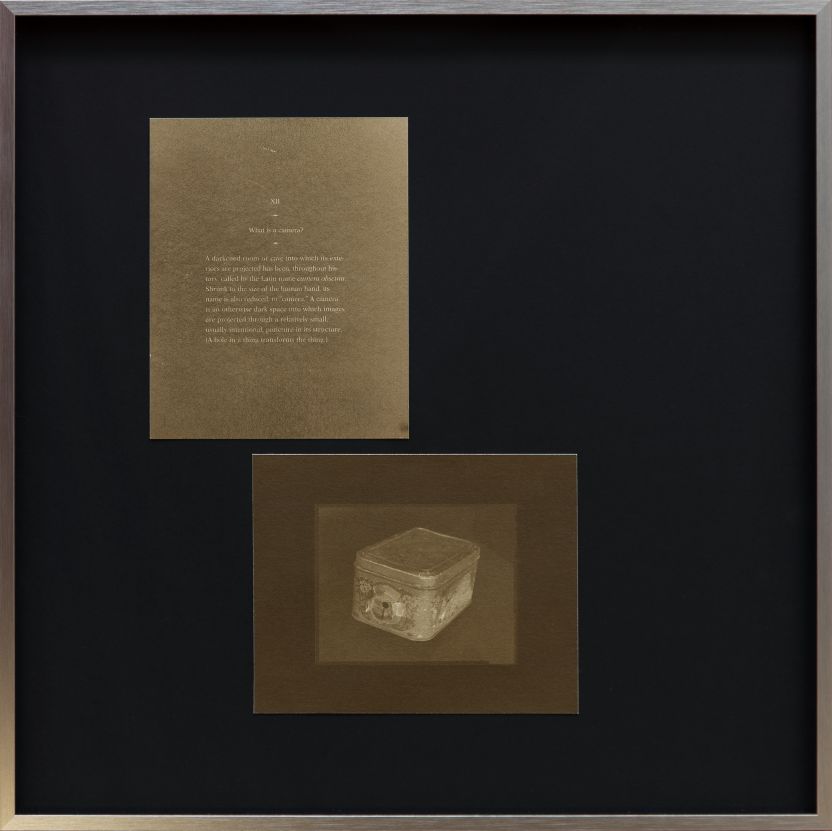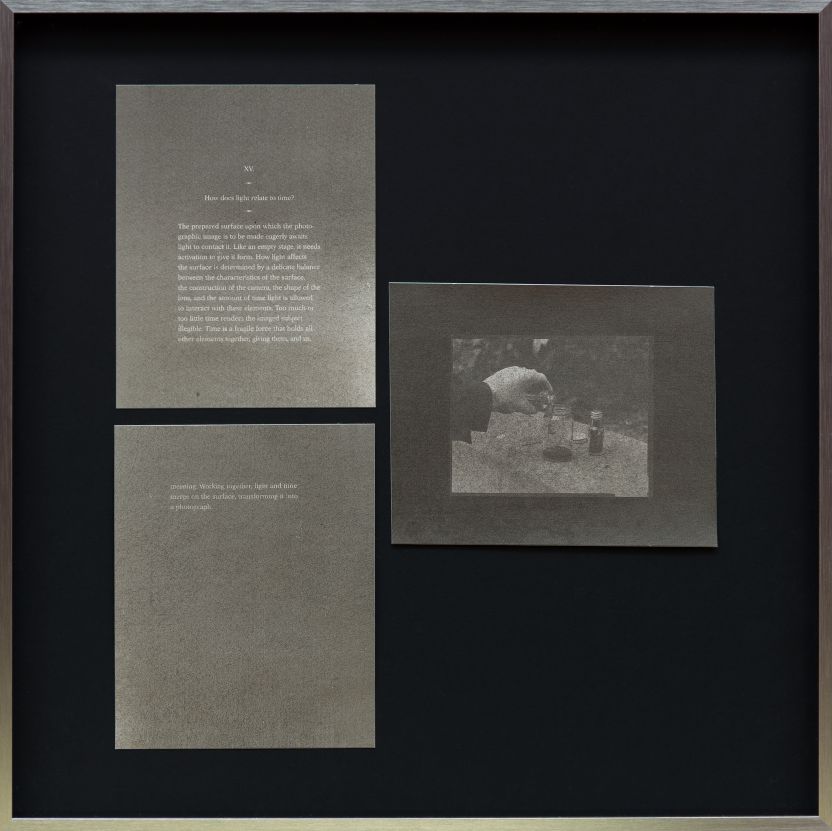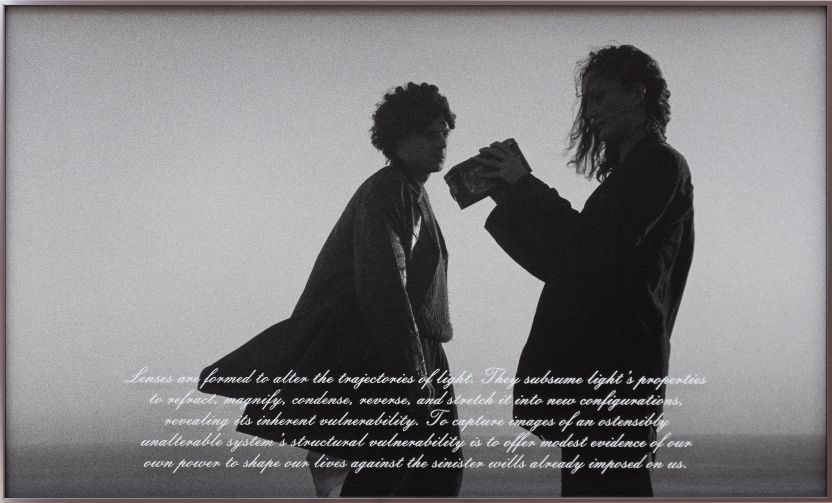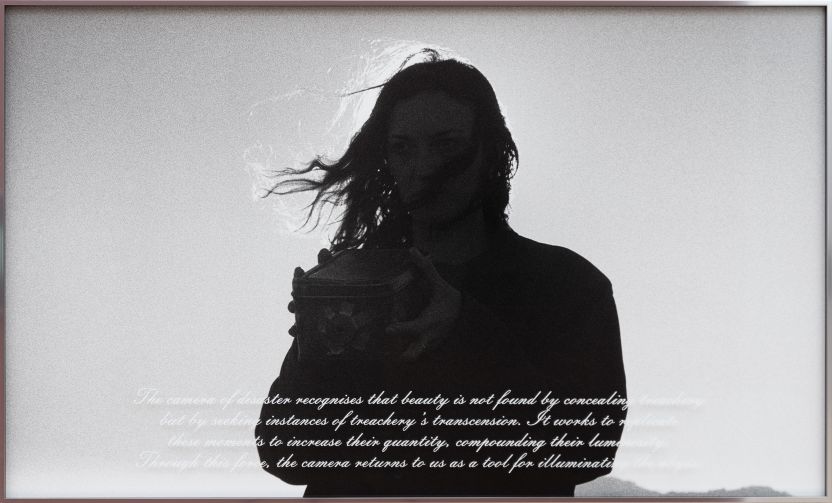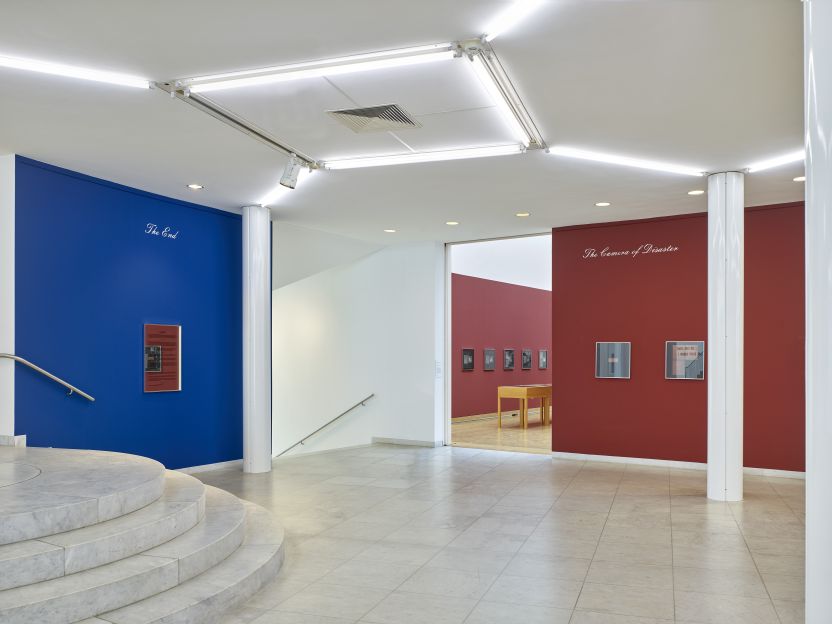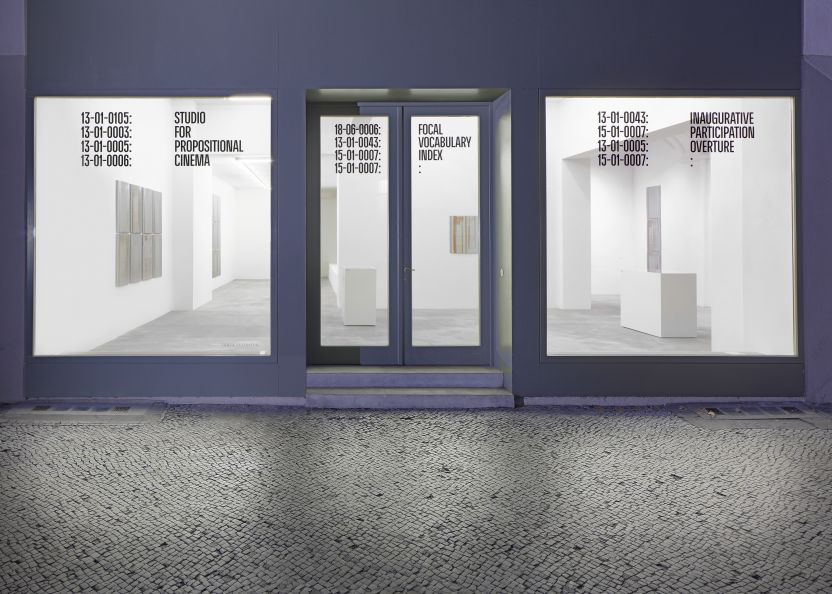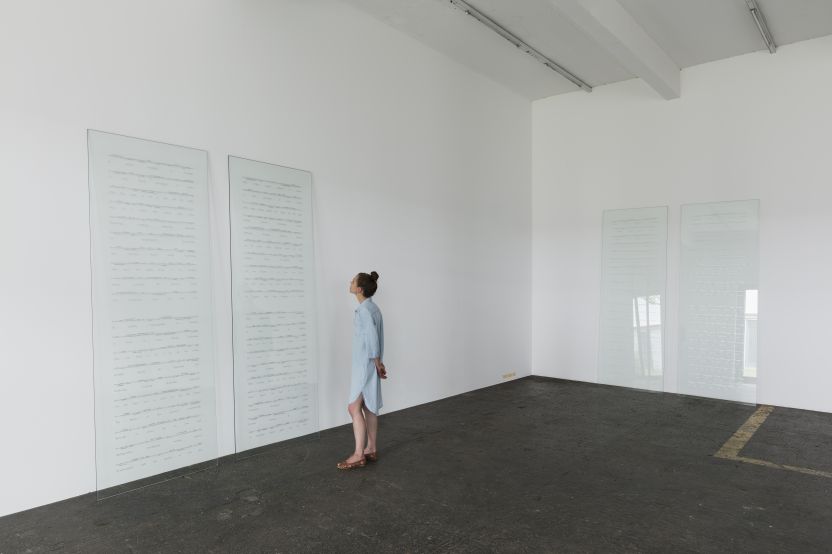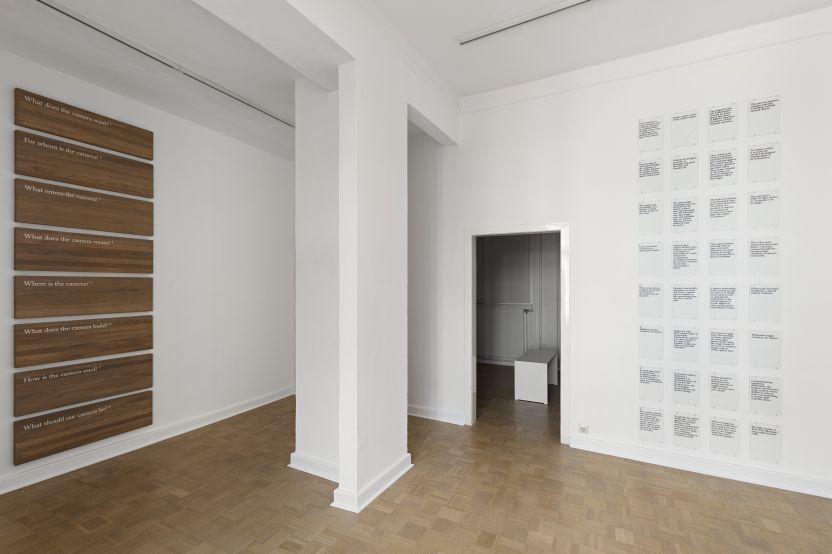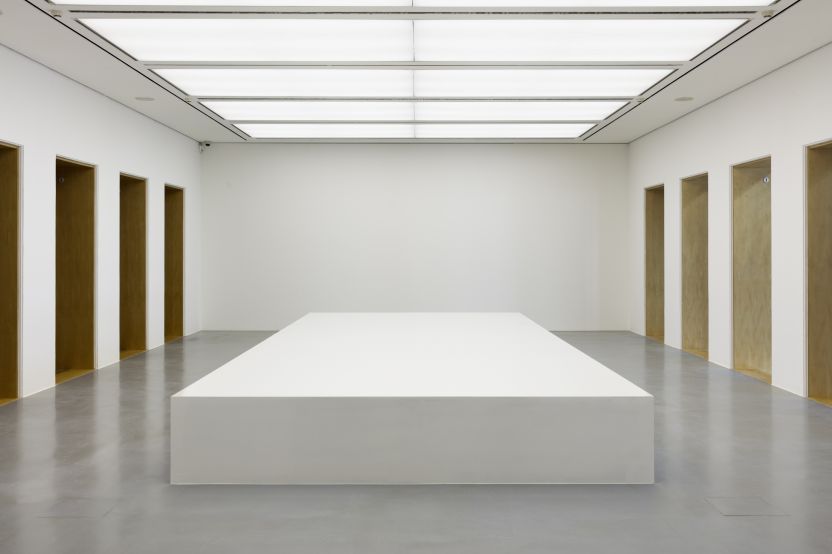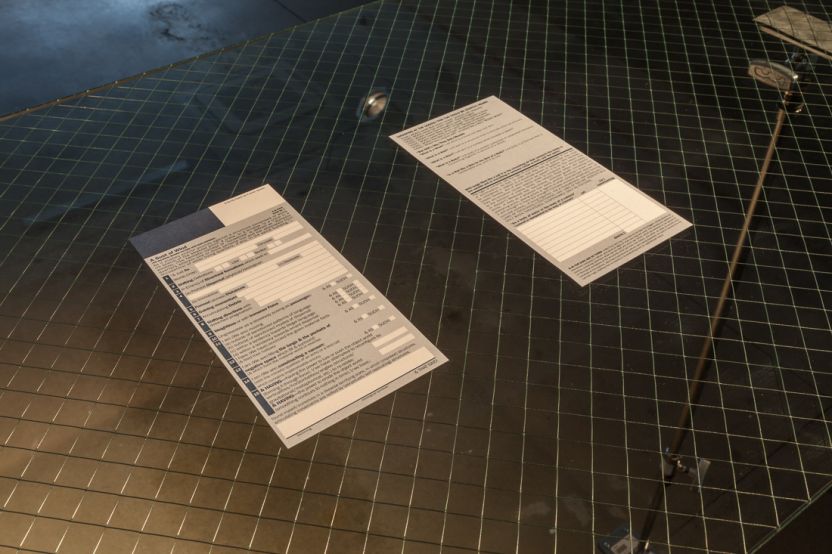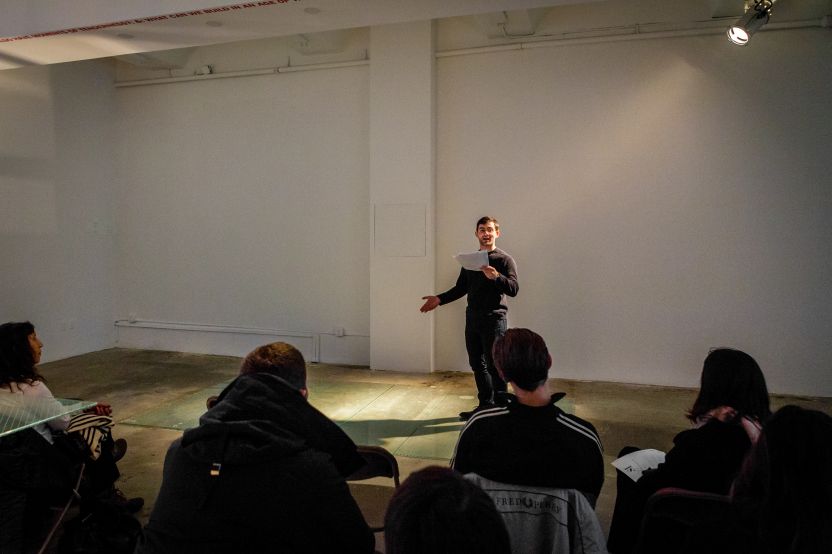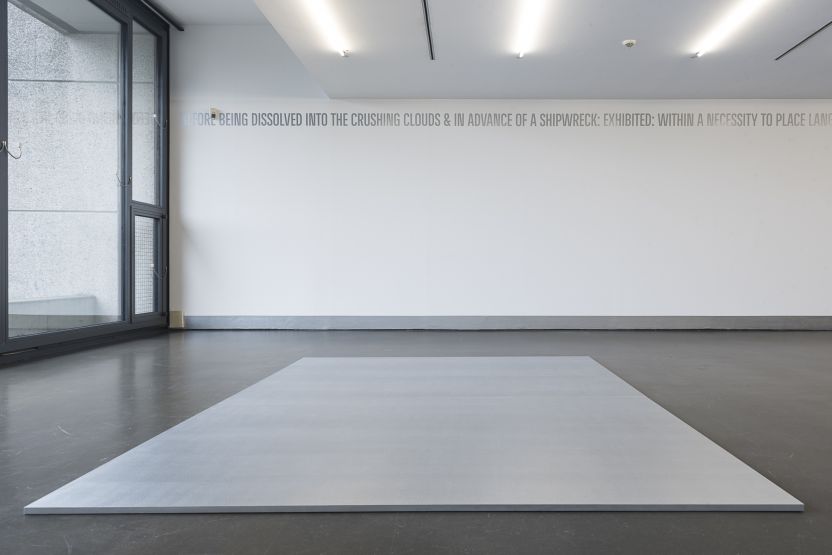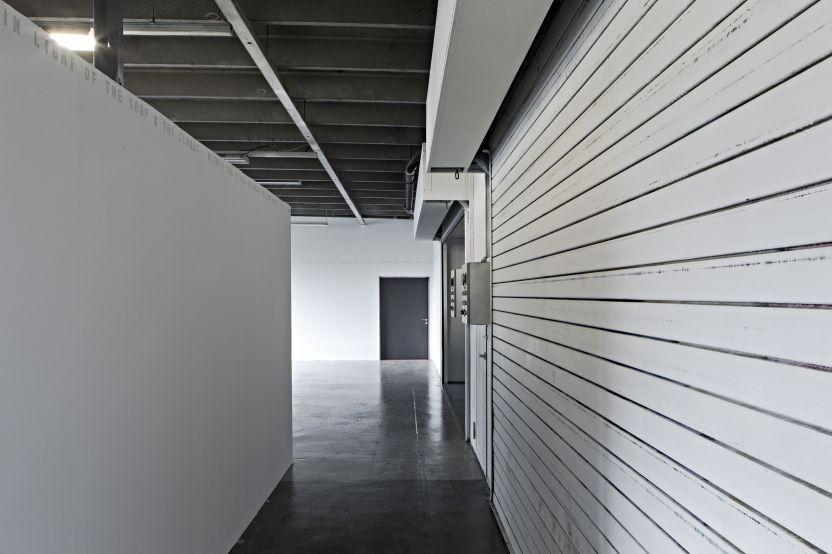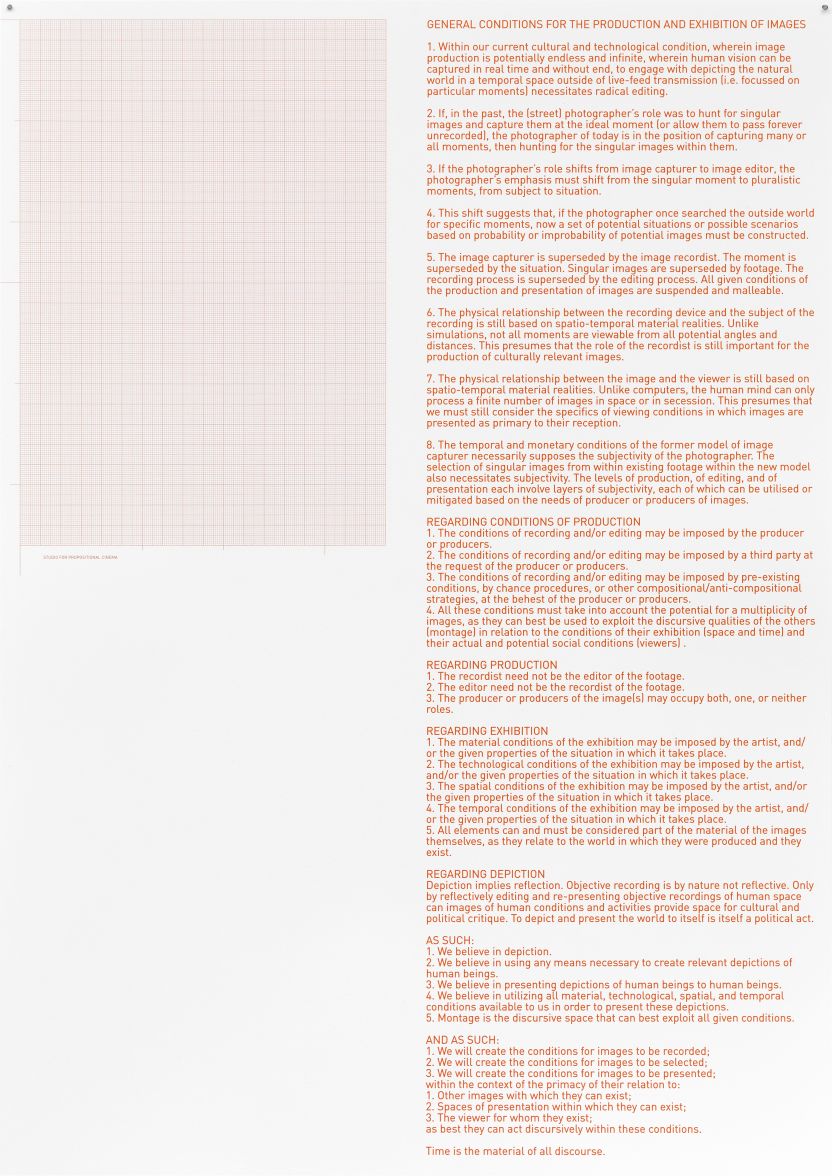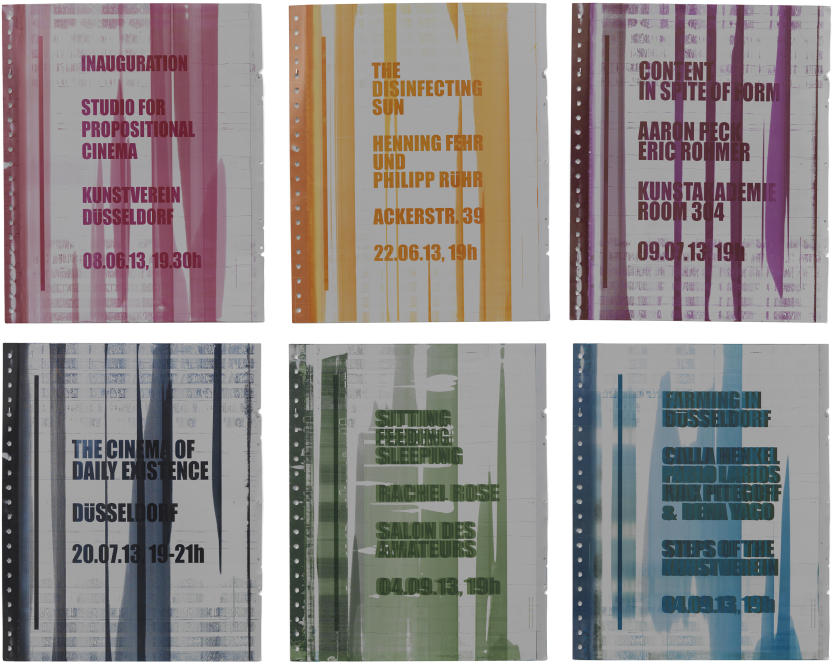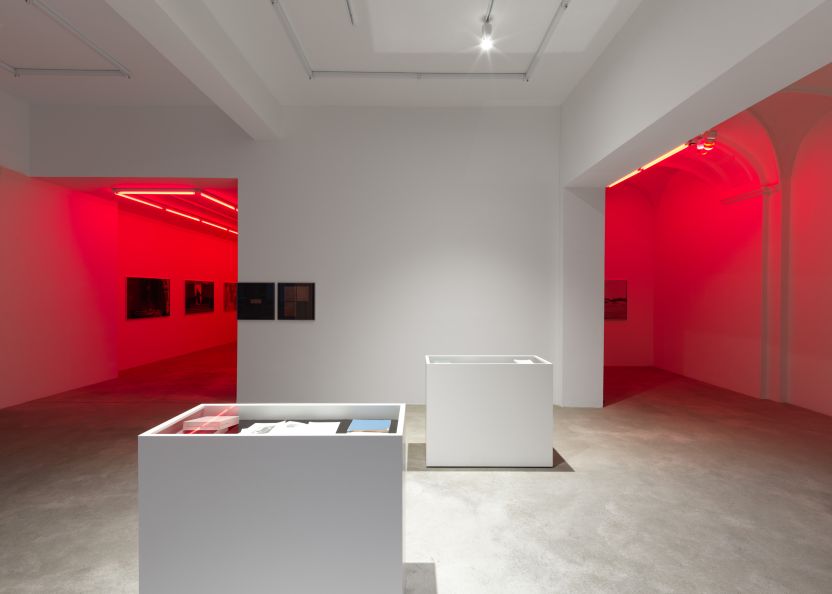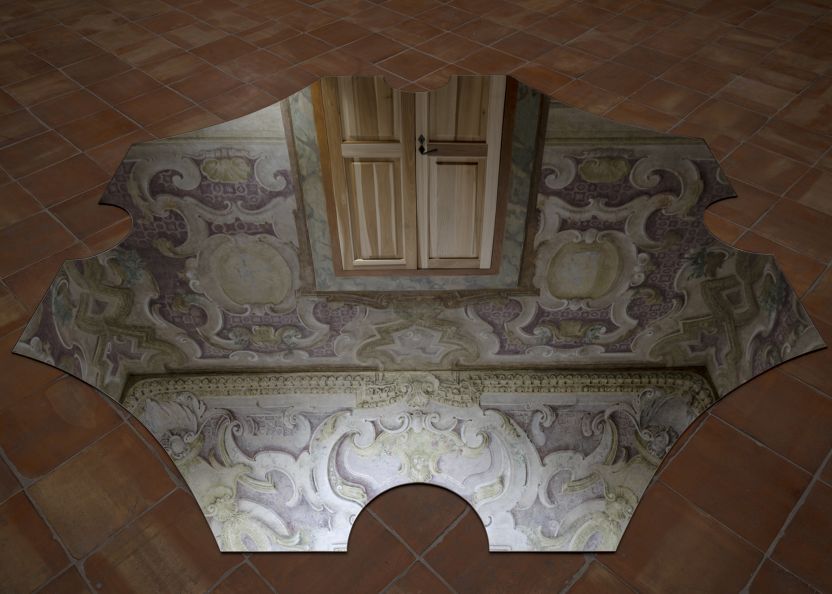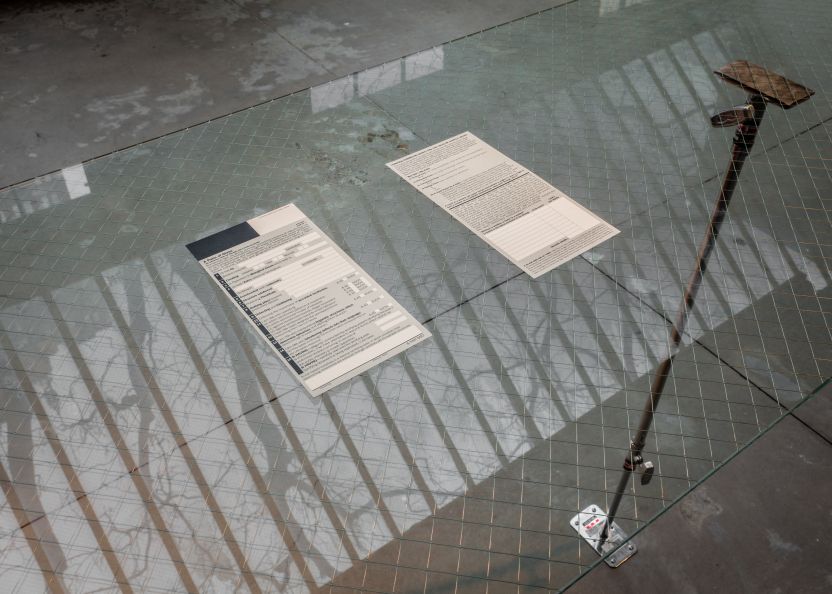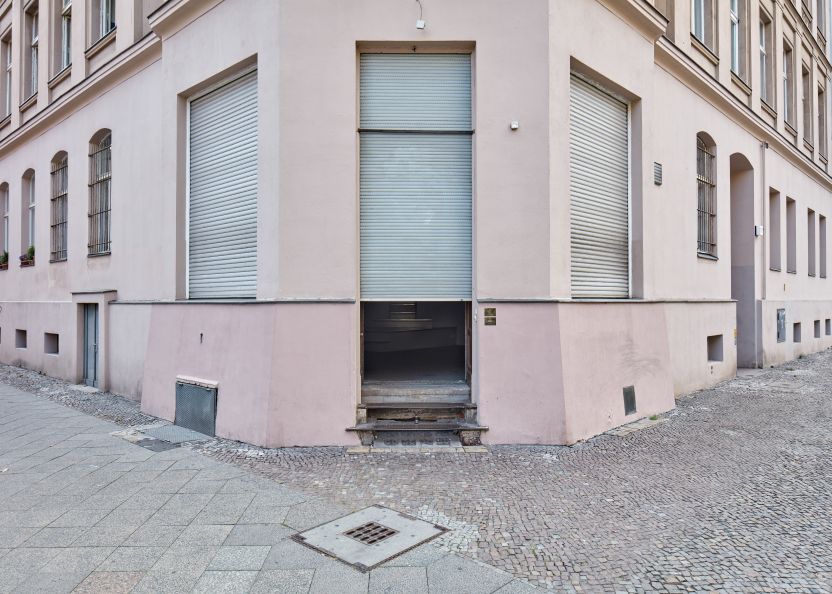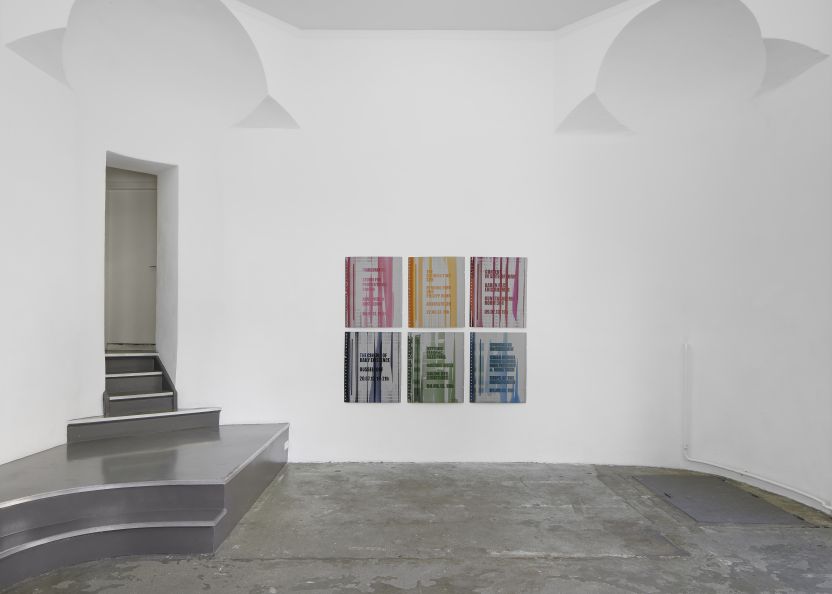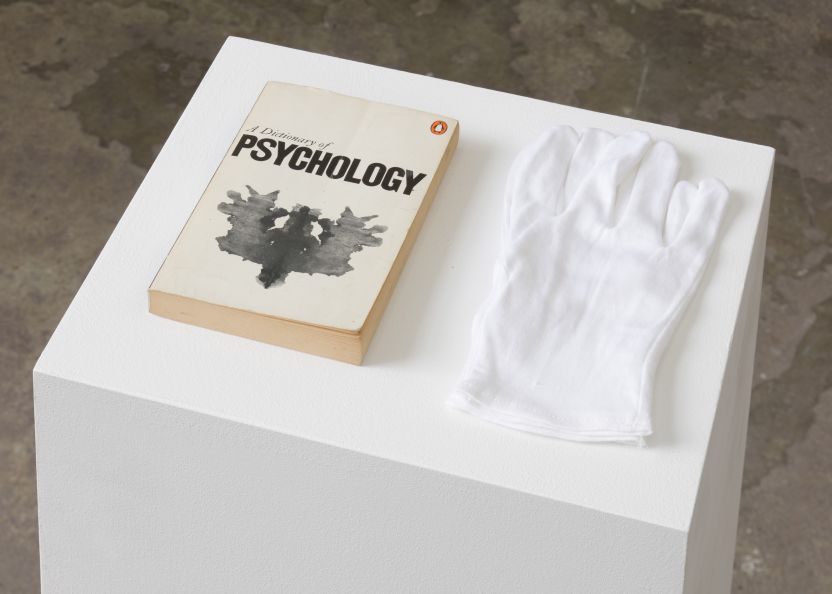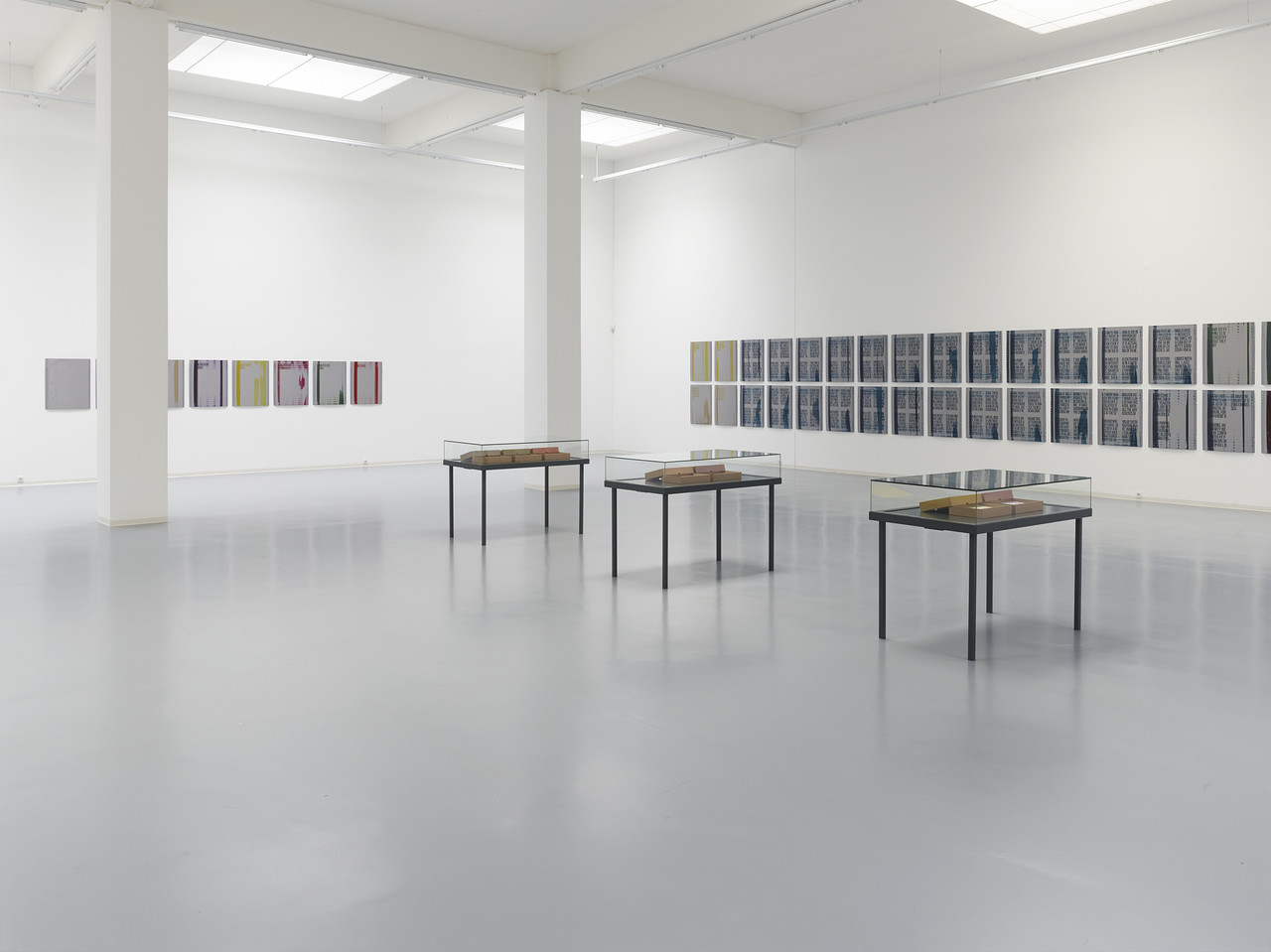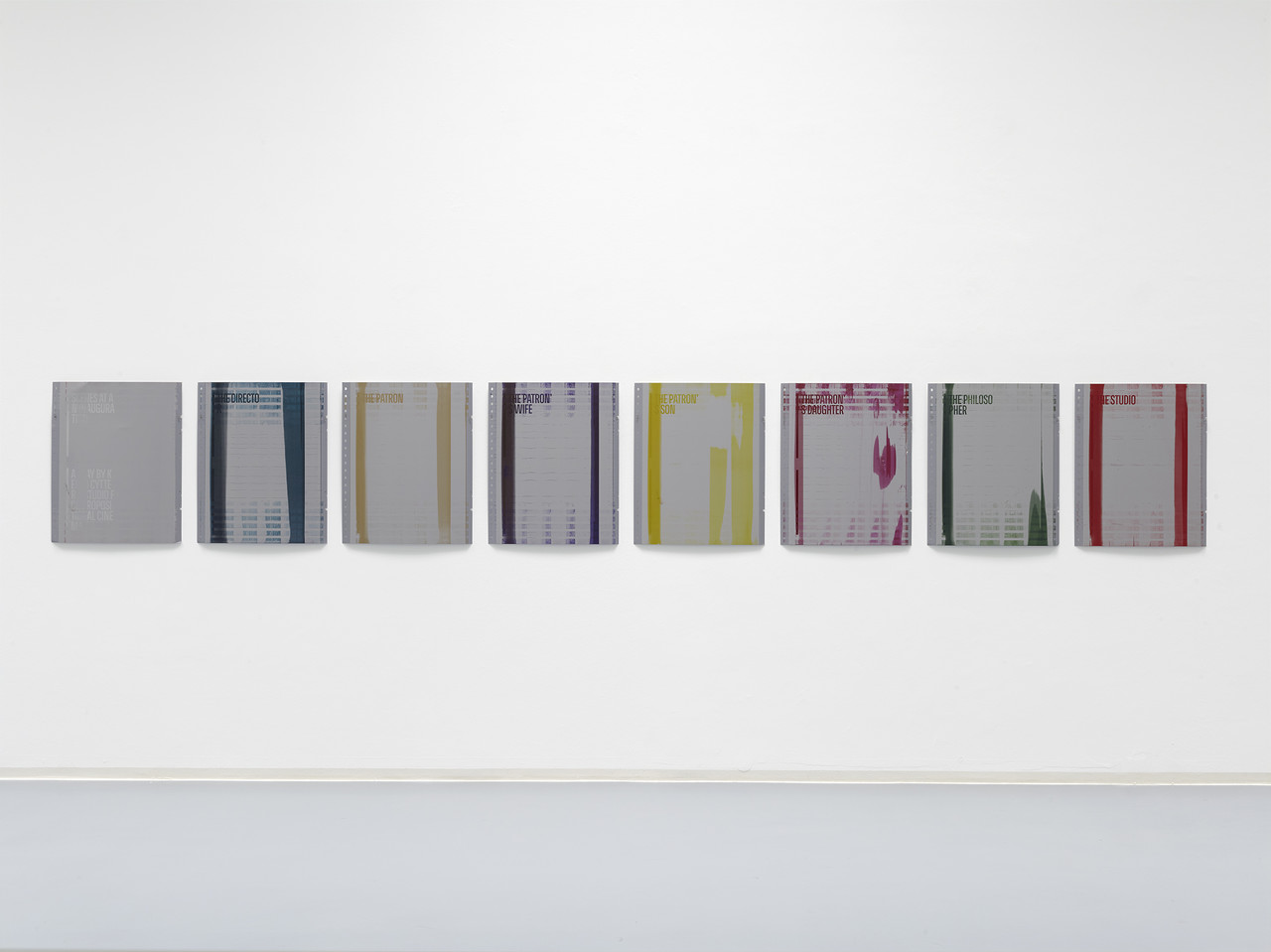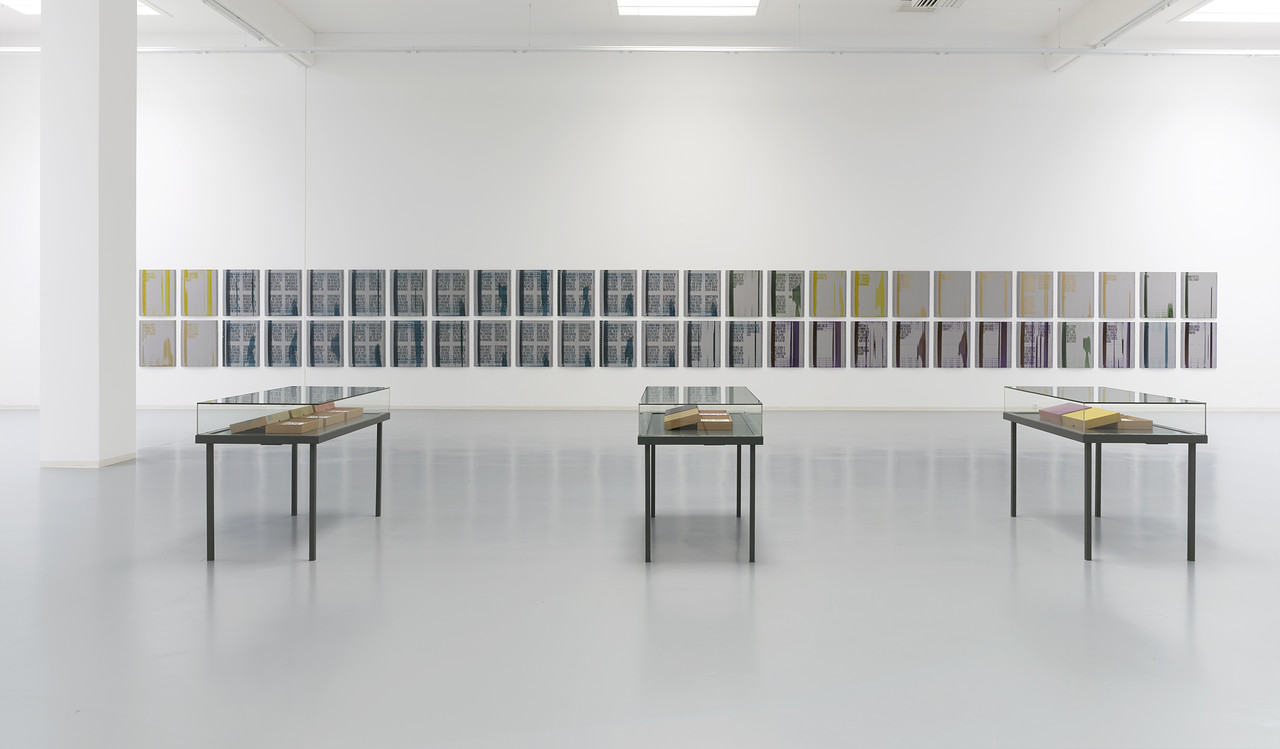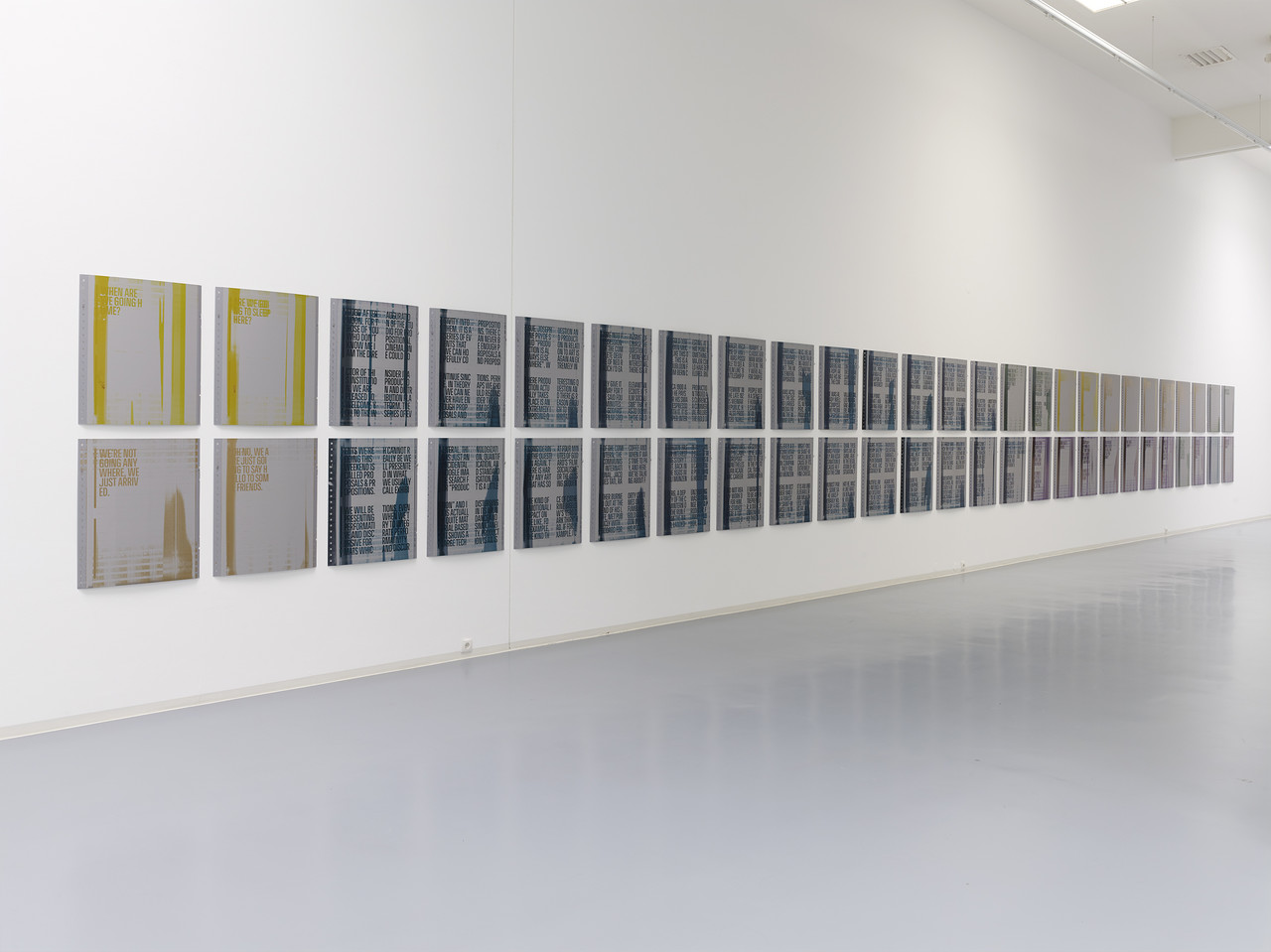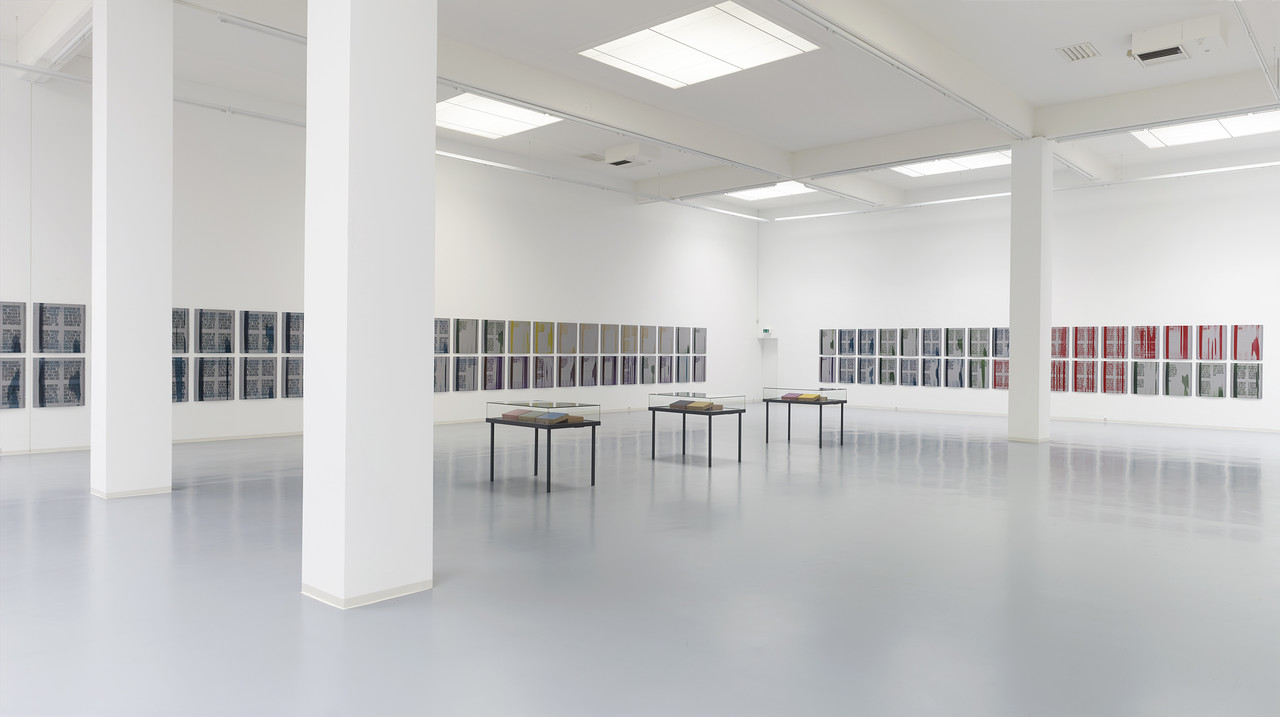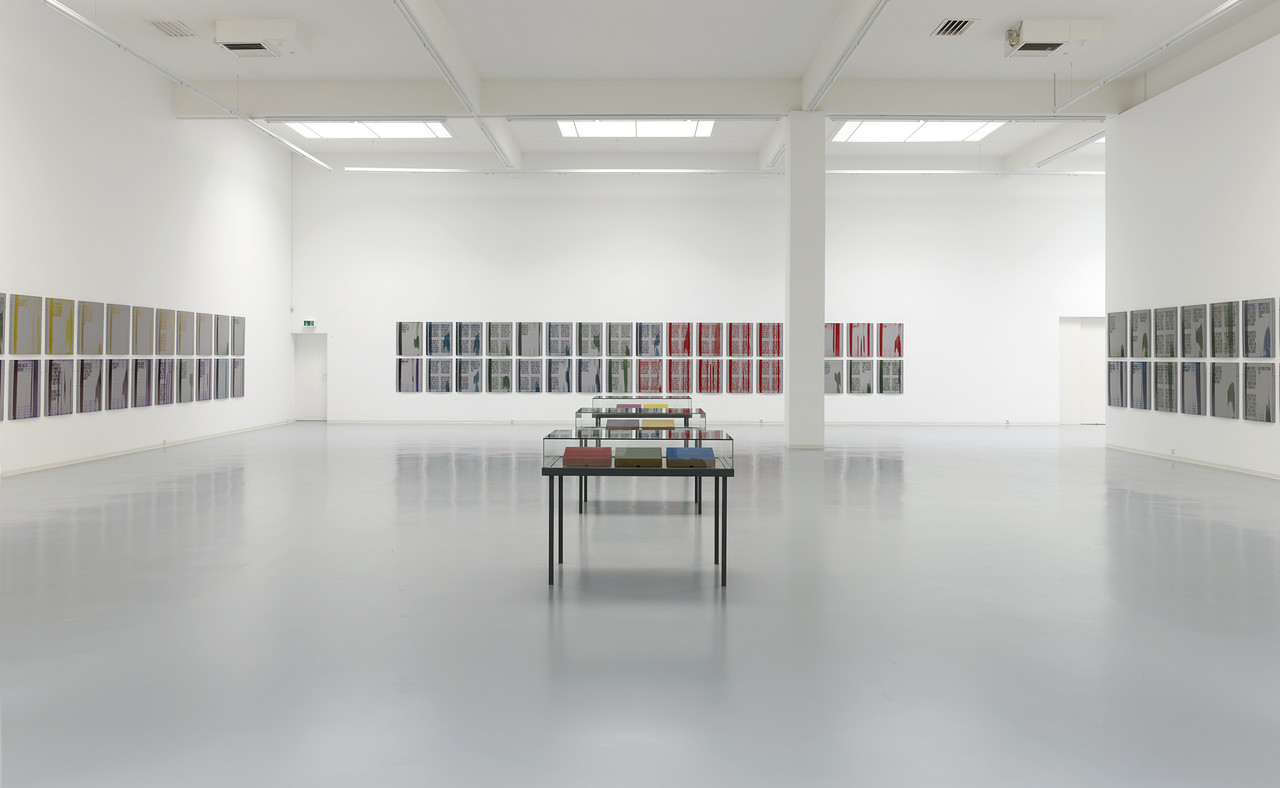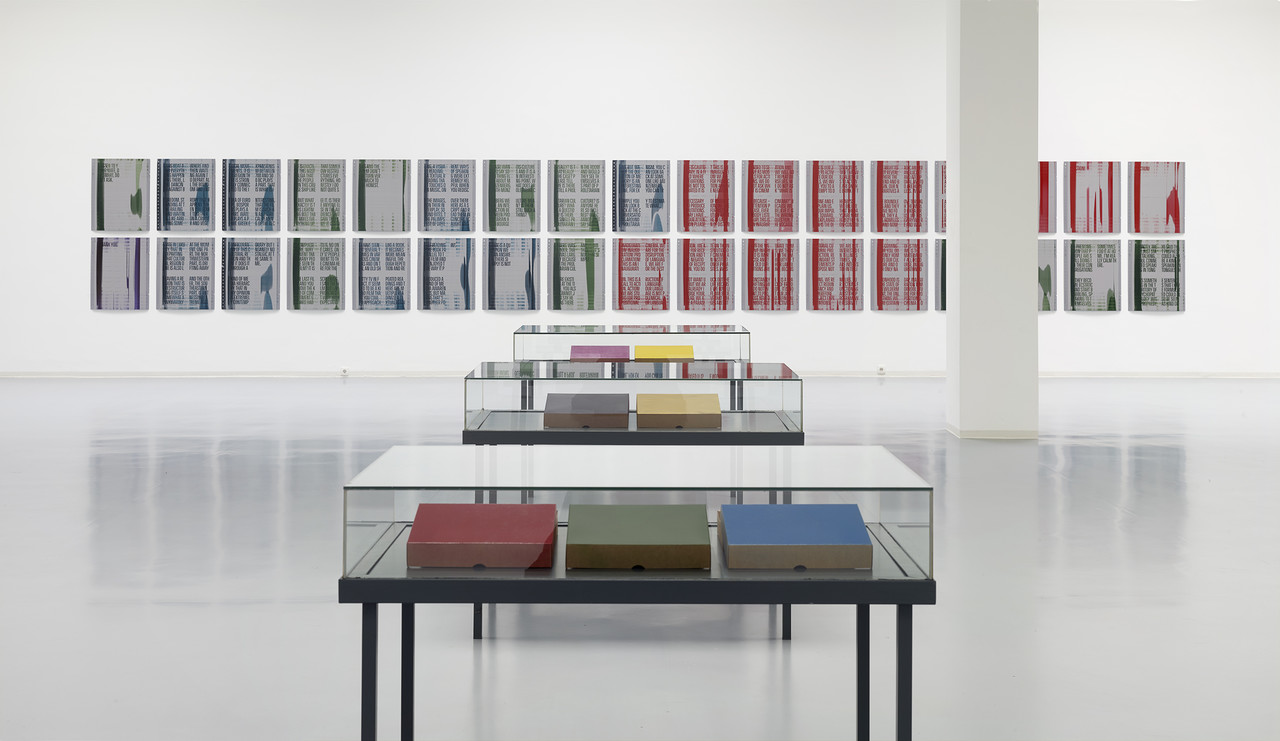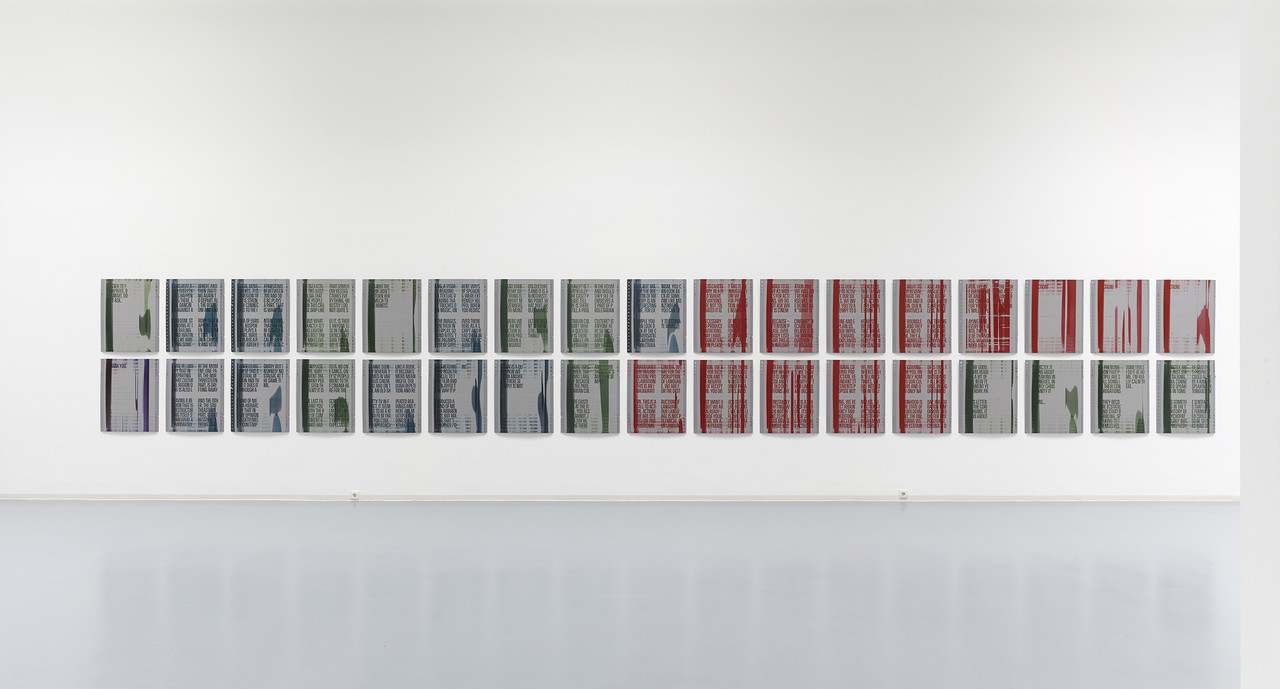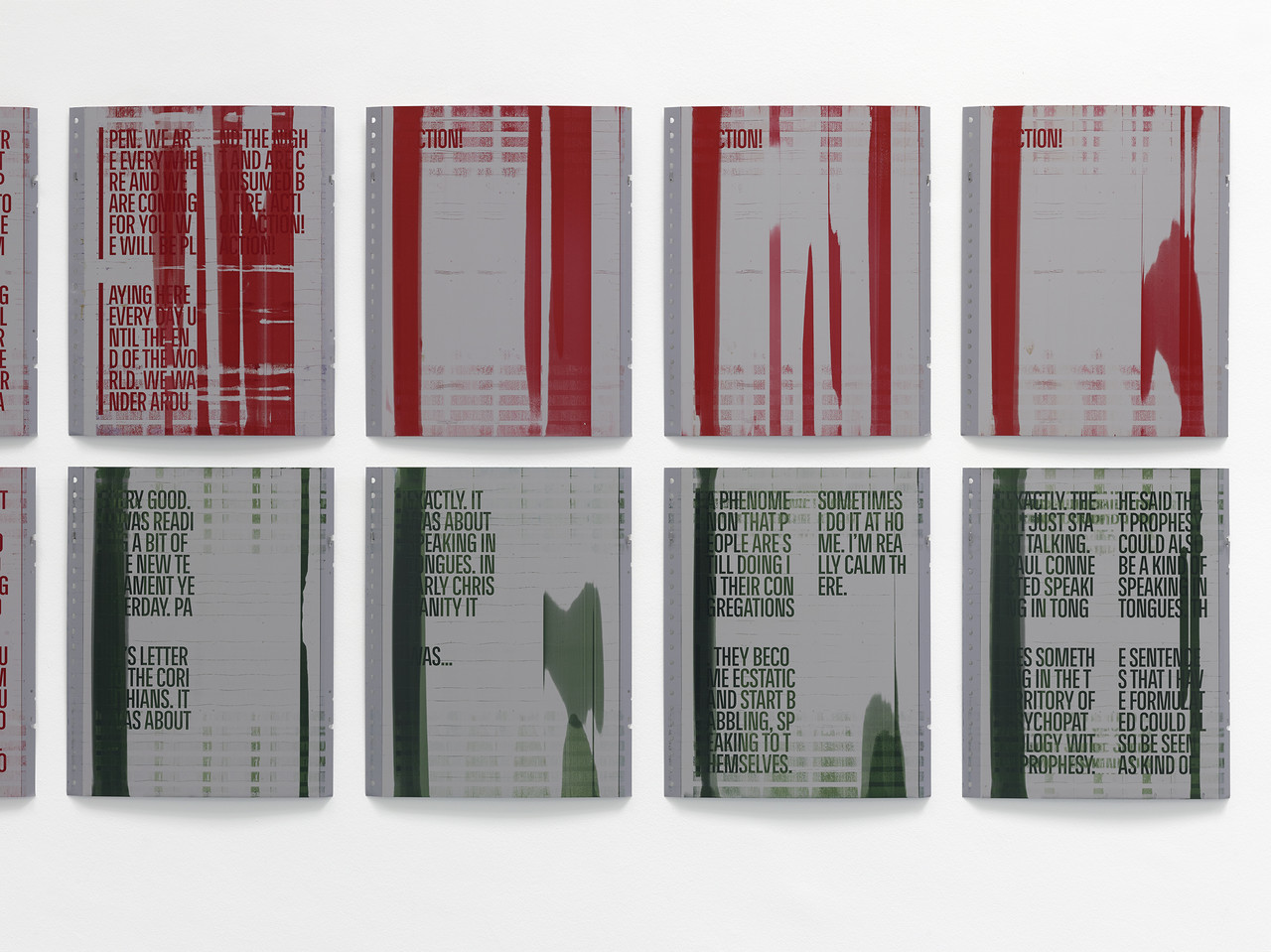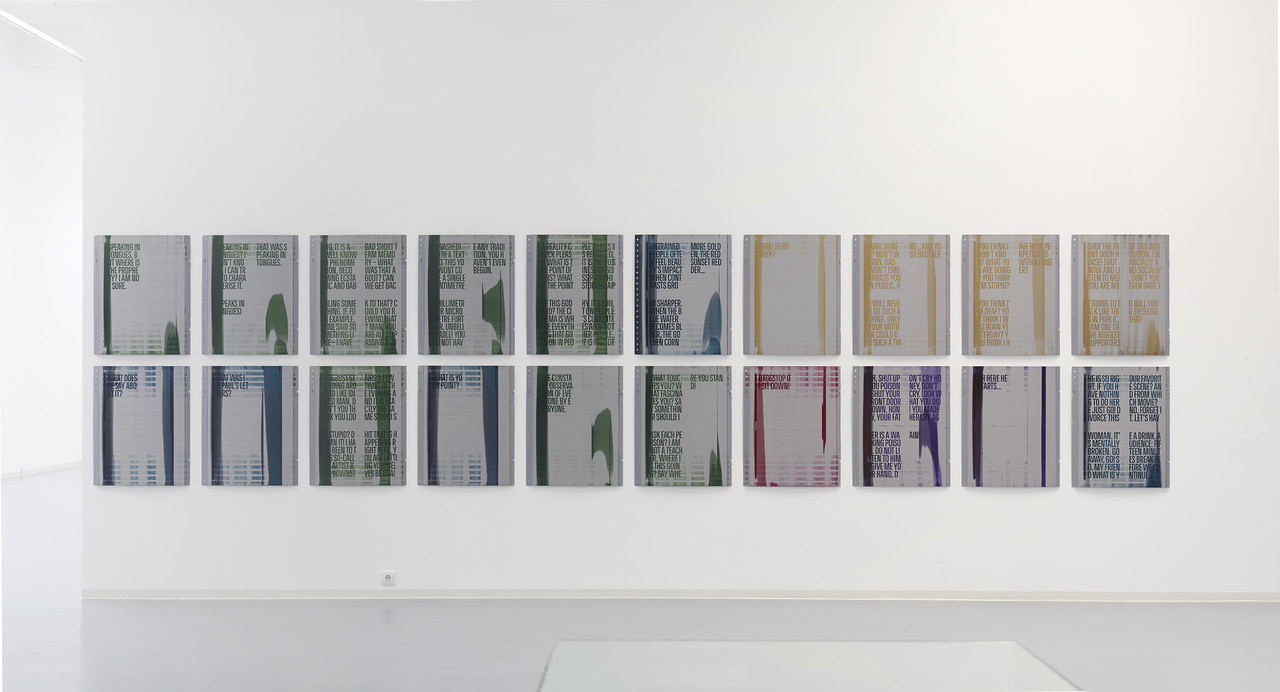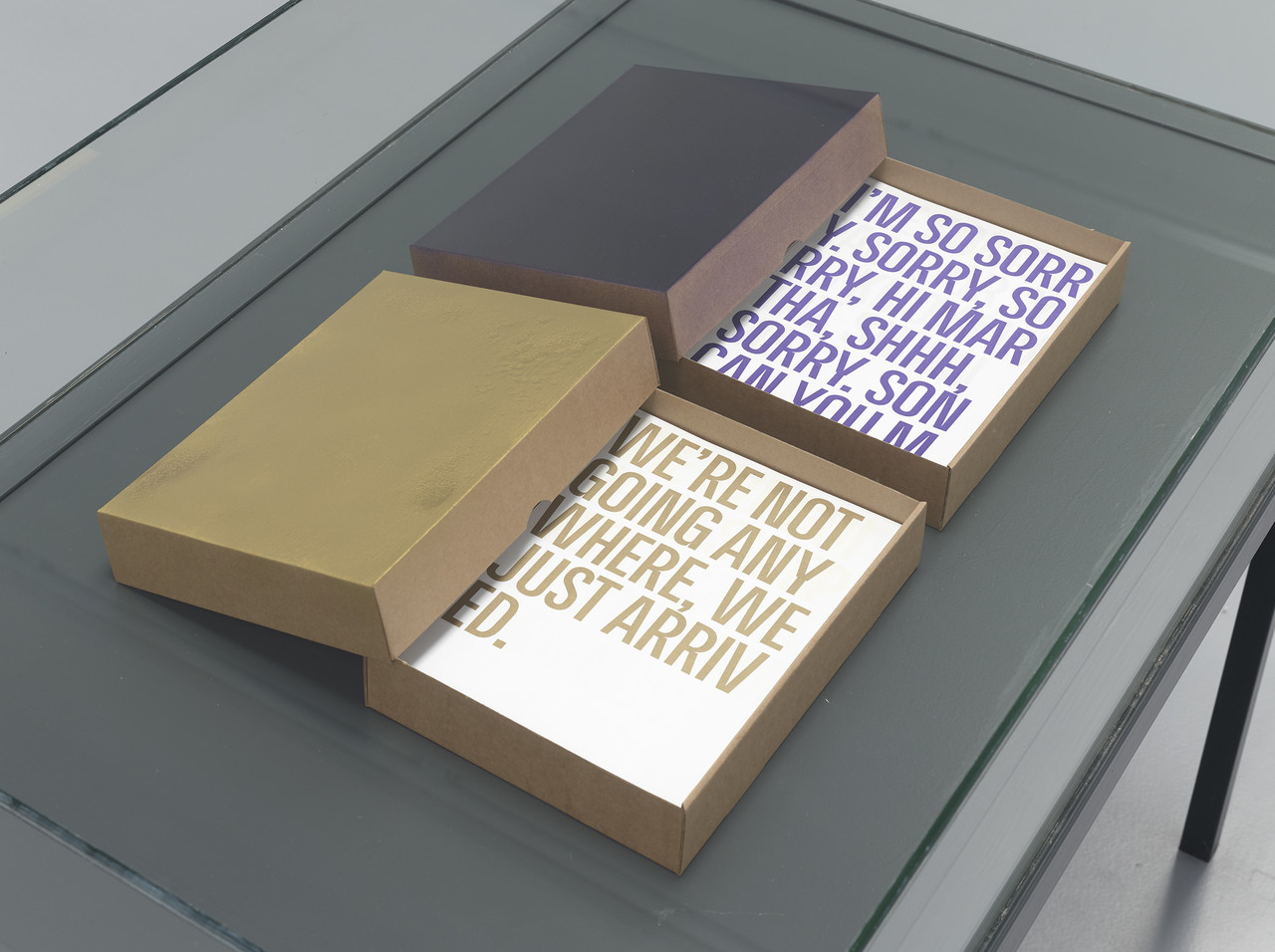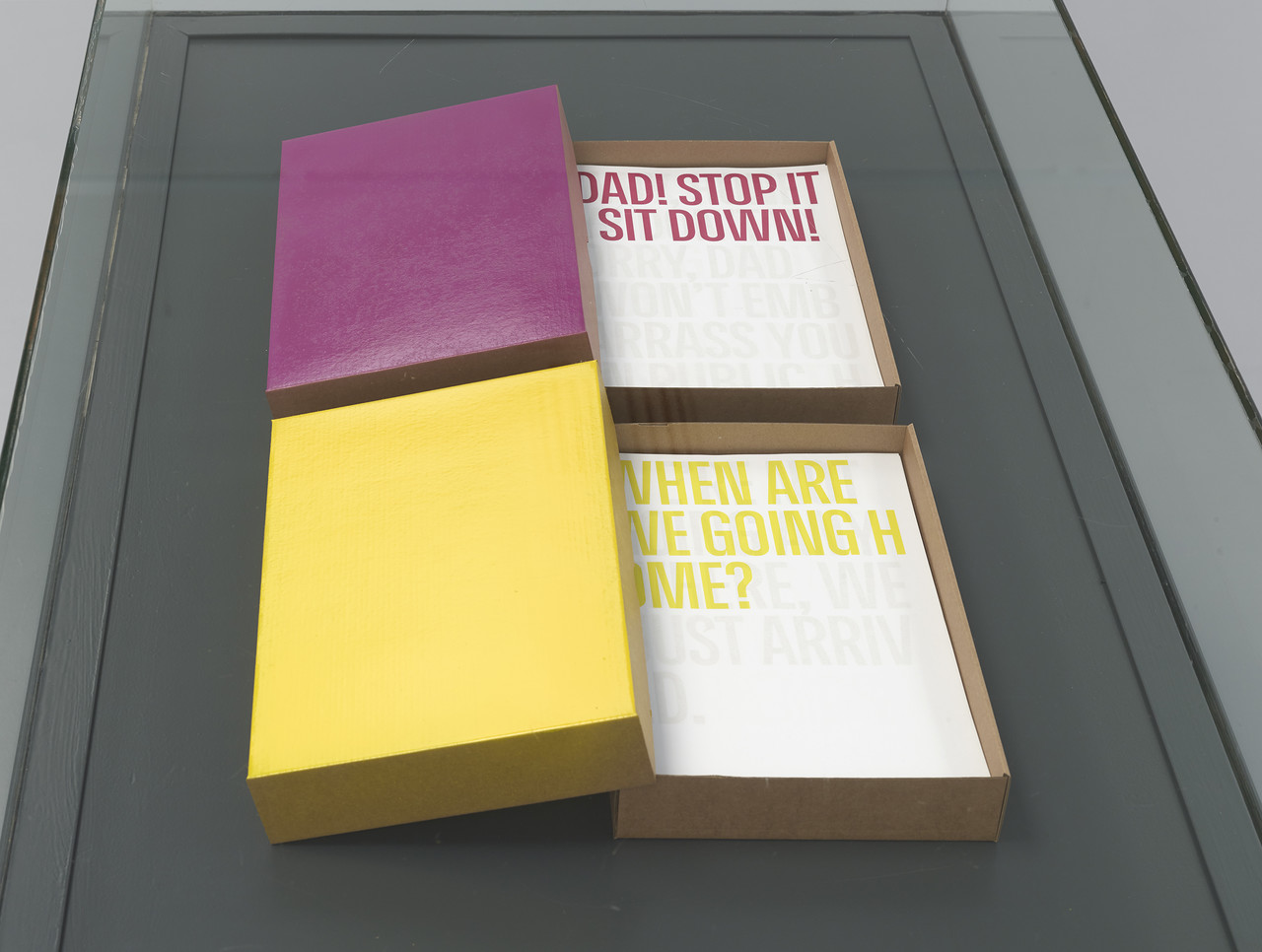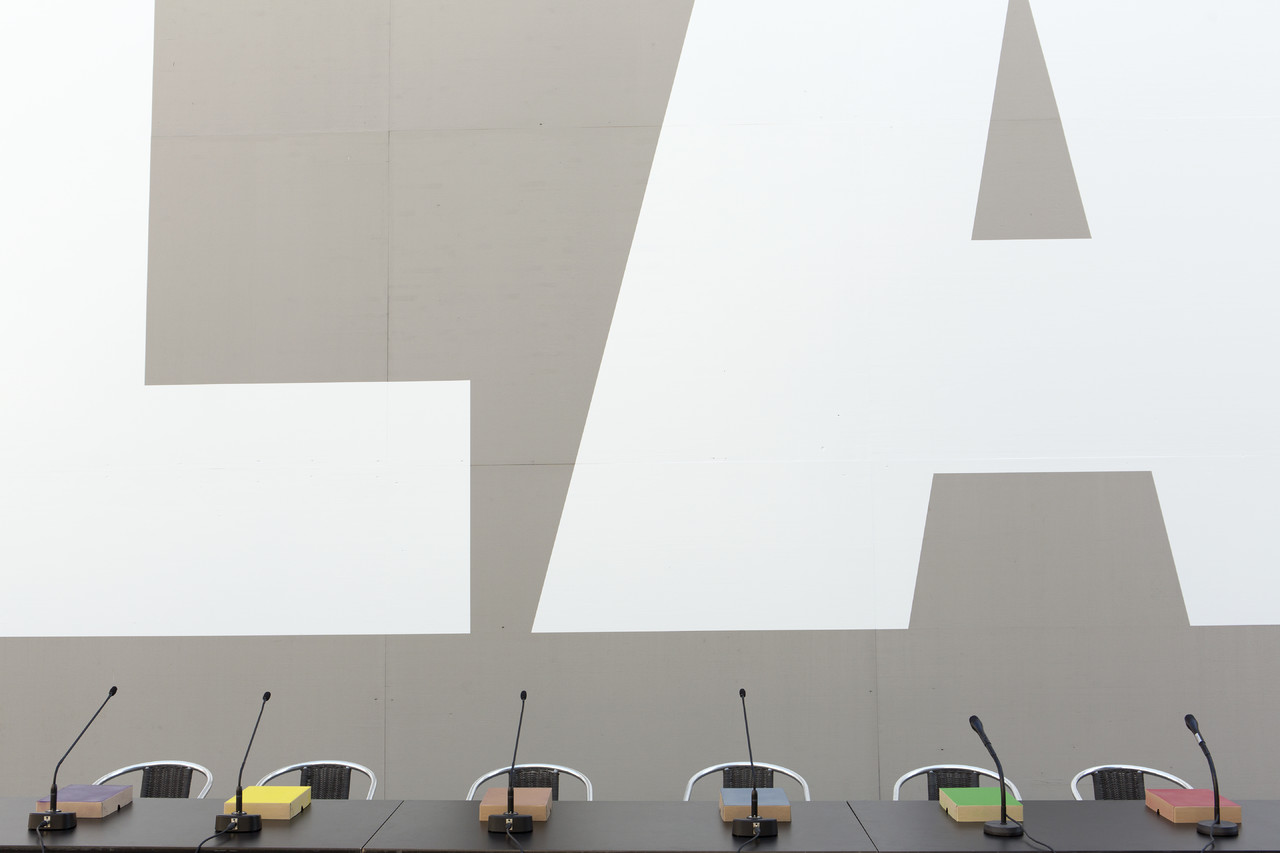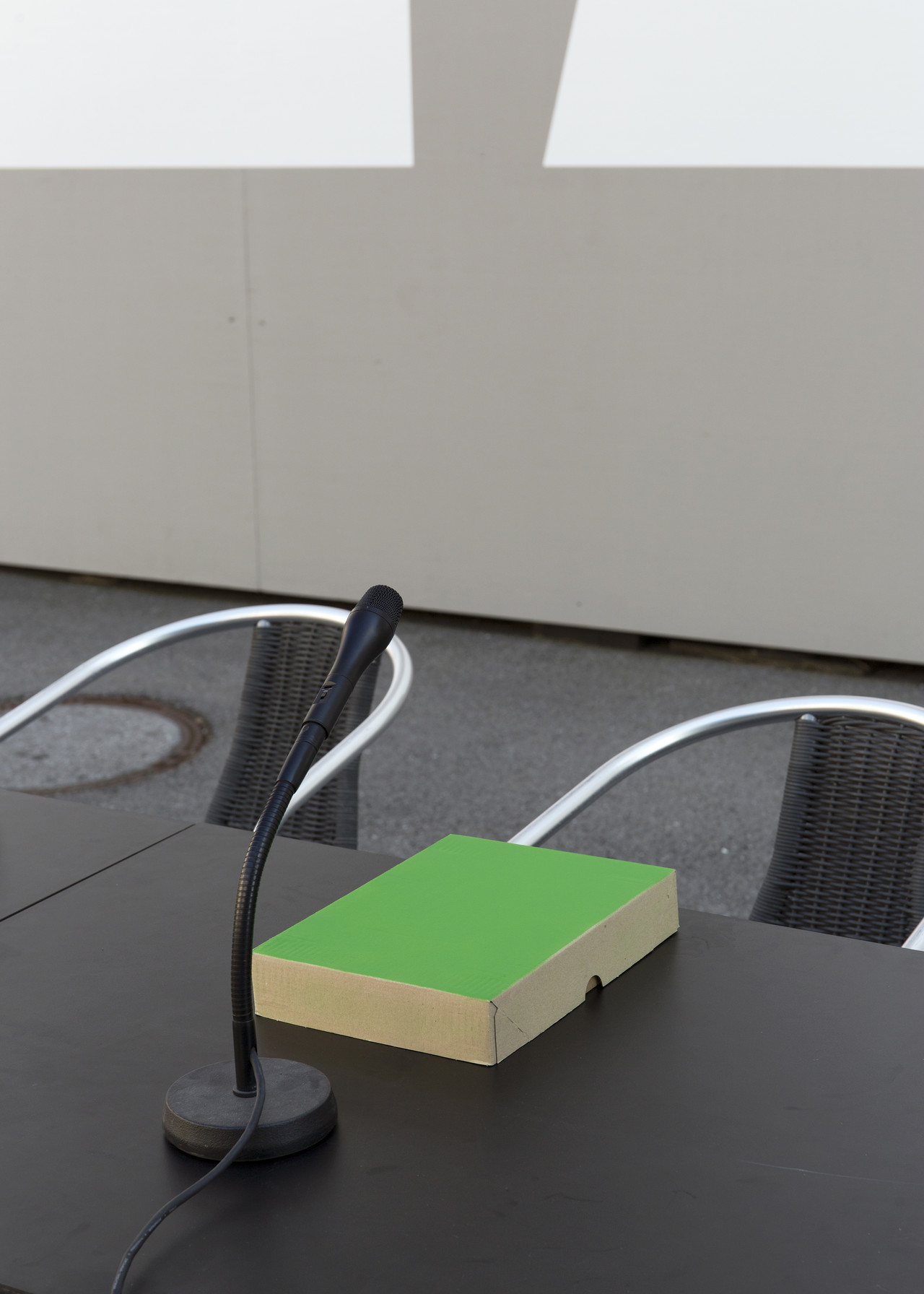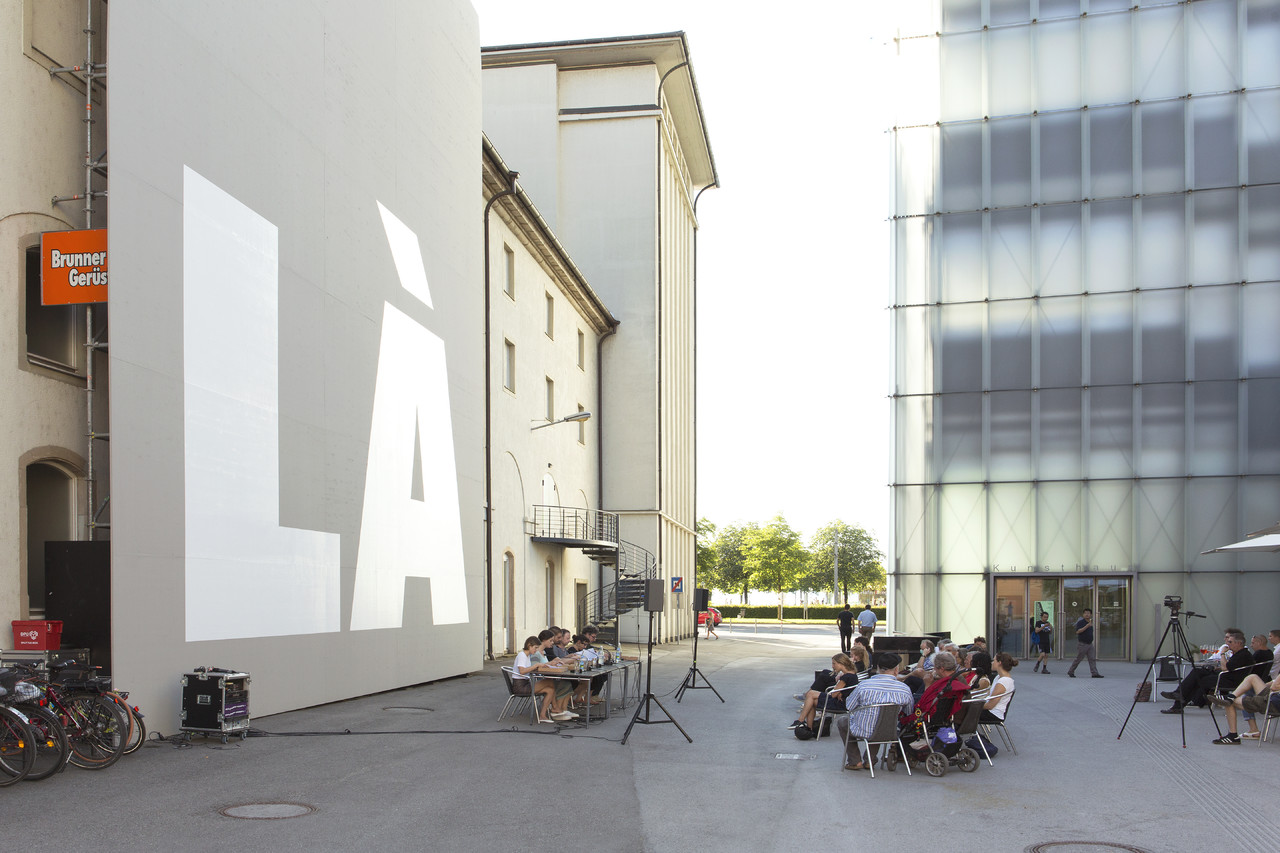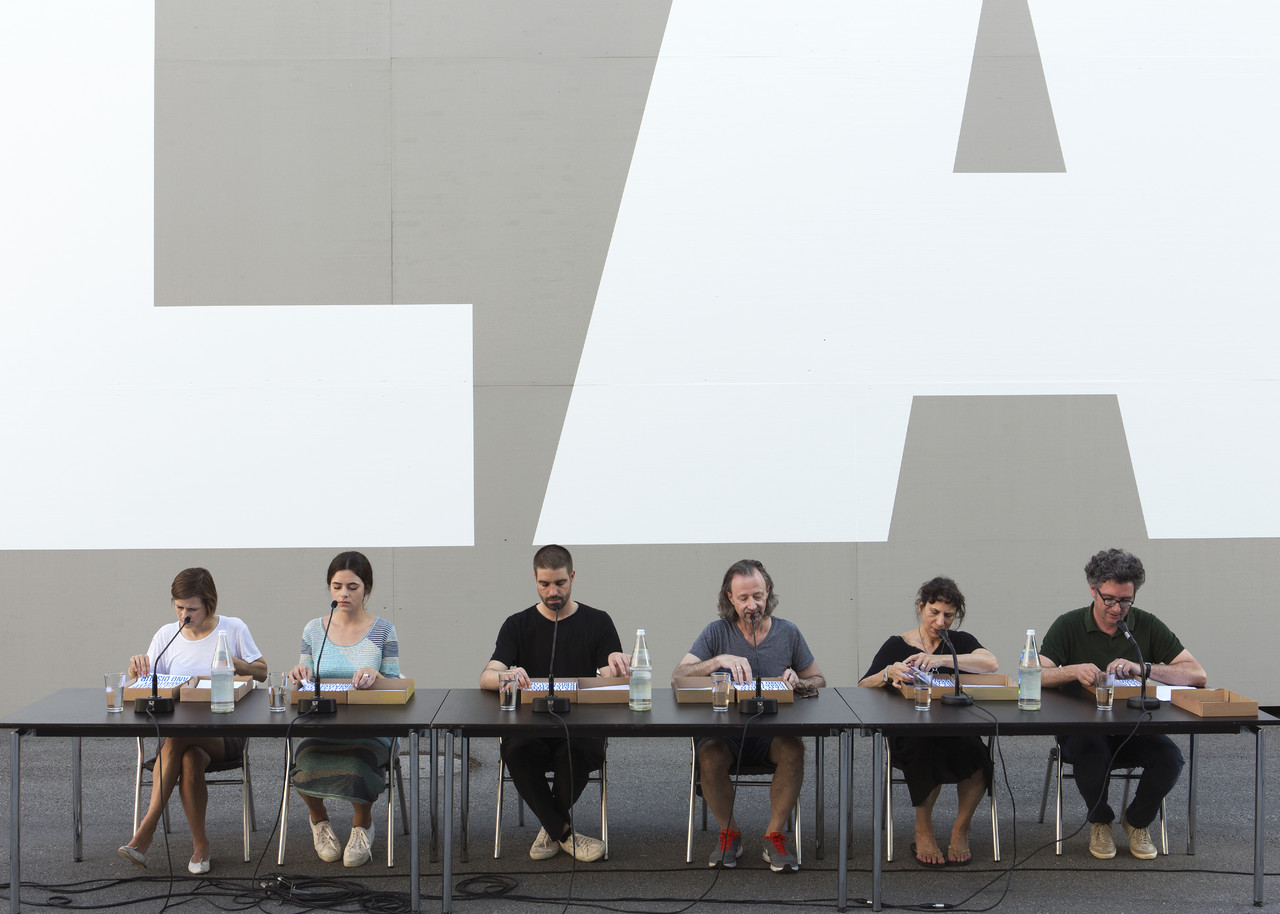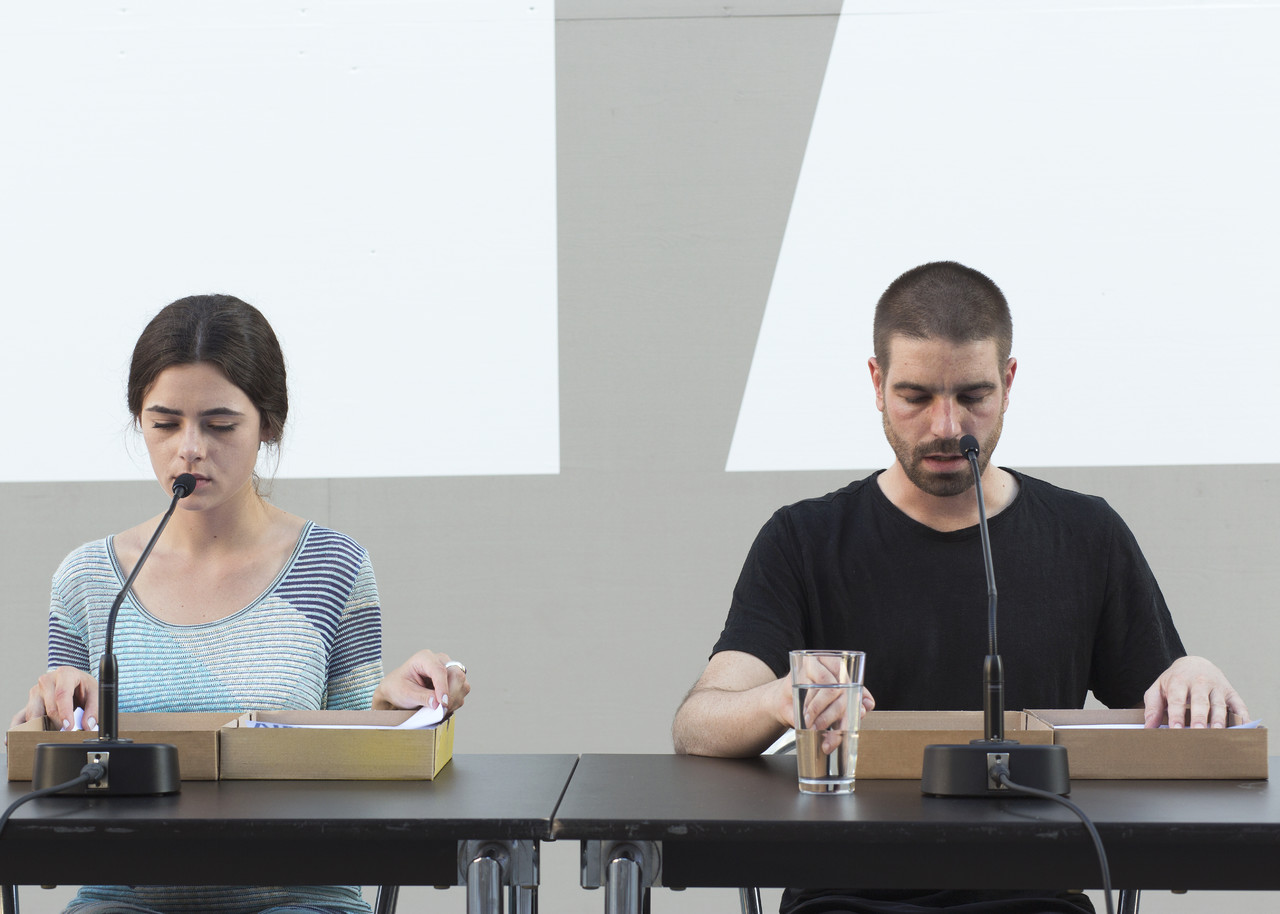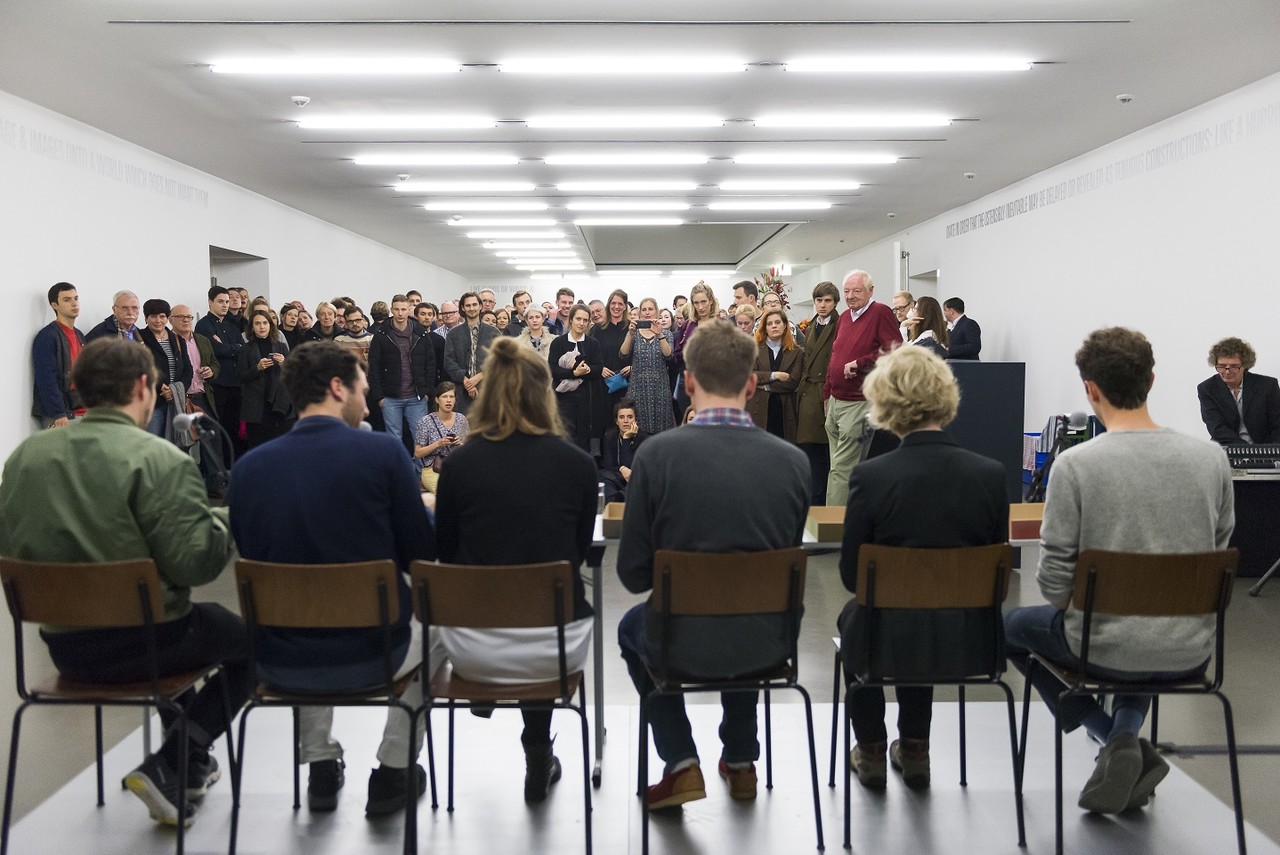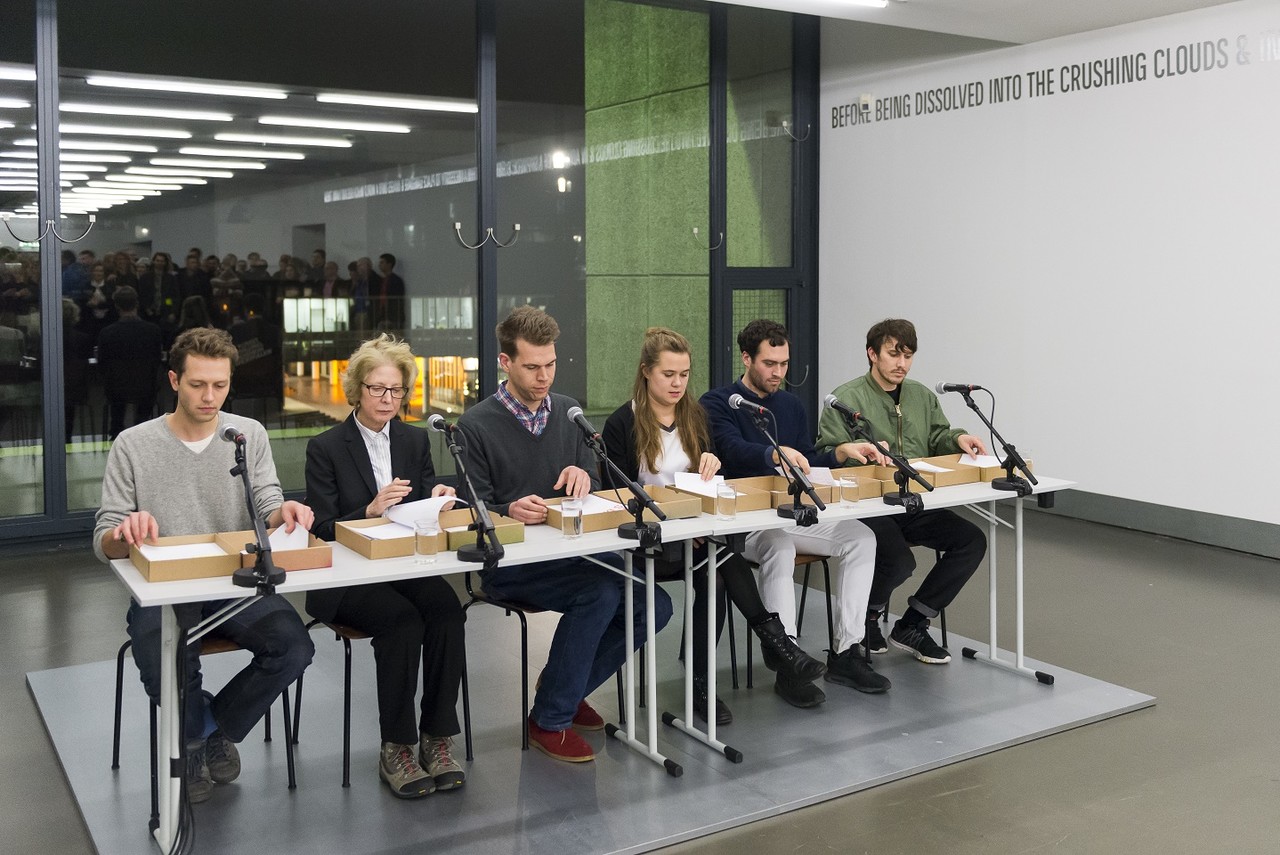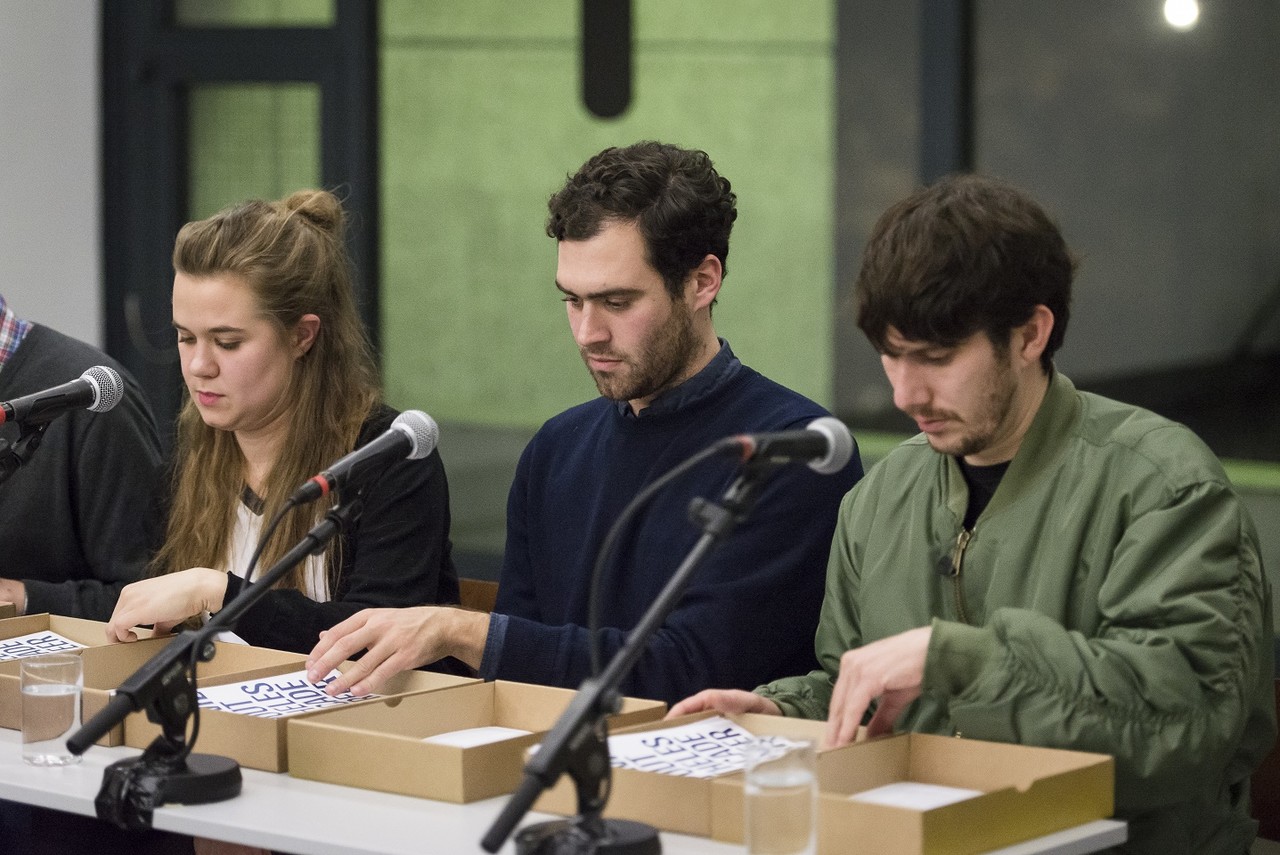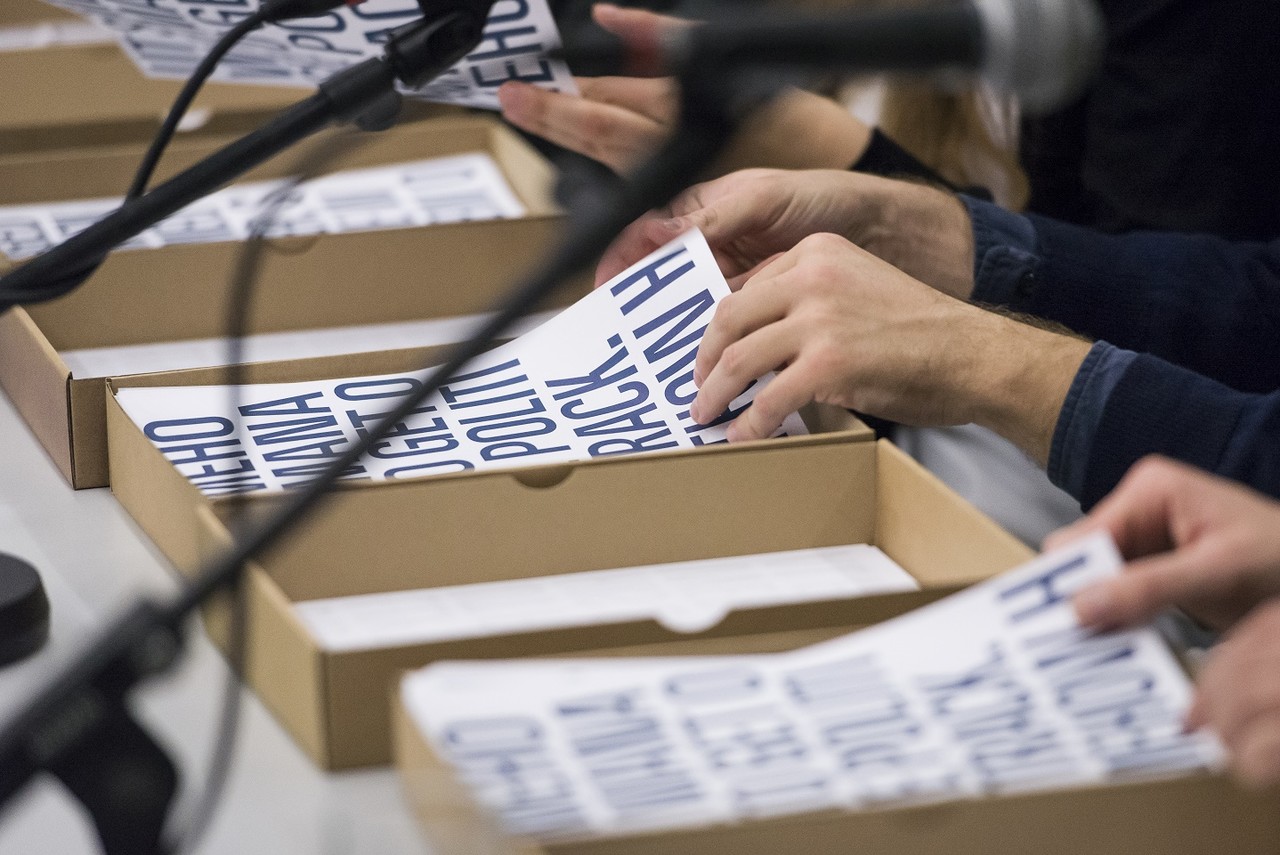LIST OF CHARACHTERS:
THE DIRECTOR
THE PATRON
THE PATRON’S WIFE
THE PATRON’S SON
THE PATRON’S DAUGHTER
THE PHILOSOPHER
THE STUDIO
THE PATRON'S SON
When are we going home?
THE PATRON
We are not going anywhere, we just arrived.
THE PATRON'S SON
Are we going to sleep here?
THE PATRON
(Laughing)
Oh no, we are just going to say hello to some friends.
THE DIRECTOR
(drinks beer throughout)
Good afternoon. For those of you who don’t know me, I am the Director of this institution. We are pleased to welcome you to the inauguration of the Studio for Propositional Cinema. One could consider it a production and distribution platform. The series of events we’re doing this weekend is called Proposals and Propositions. We’ll be presenting performative and discursive formats, which can’t really be well presented in what we usually call exhibitions, even when we try to integrate performativity and discursivity into them. It is a series of events that we can hopefully continue since, in theory, we can never have enough proposals and propositions.
There can never be enough proposals and propositions. Perhaps to reconsider the form of production in general, this is just an incidental Google image search for “production” and it’s actually quite material based. It shows a large technologization, quantification and standardisation that’s a little disturbing in its abundance and simultaneity.
Production is an issue. Josephine Pryde said, “production is always elsewhere.” Where does production actually take place? It’s an extremely imposing question and production in relation to art is again an extremely interesting question. And there is reason enough to begin irritatedly considering the question again.
There’s hardly any art that has some kind of emotional impact on me like, for example, the kind that four minutes of Godard’s Film Socialisme or the closing sequence of Catherine Bigelow’s Zero Dark Thirty had. If, for example, I came into possession of the complete oeuvre of Neo Rauch, I’d easily give it away for the said four minutes of Godard’s Film Socialisme. Of course, the question of money is interesting. There’s a relevant anecdote in Film Socialisme that has to do with the gold of the Comintern, the Communist International. Jacques Tati, rather burned out at the end of his life, met publicly with Godard for coffee and when it was time to pay, and here we’re talking about 40 centimes or so, fumbled a gold doubloon out of his pocket. A gold doubloon much like this one. This is a doubloon from Bern circa 1900 and he pays for his small espresso with it. It’s super interesting. At that point something major could have developed: big production traded as currency - a commercial failure.
The gold doubloon has an interesting story to it. Back in the 1930’s, Willi Münzenberg, a deputy of the Comintern on the run from the Nazis, landed in Paris and brought the Editions du Carrefour to life - a publishing house. Willi Münzenberg was a strange guy, a producer, funnily enough, an enabler. Because of him, it was possible to see a film like Battleship Potemkin in the late 1920’s Weimar Republic. He also produced Kuhle Wampe - a classic german worker film. They were all for simple people with a sense of humor.
He came from an alright social background but became a dropout nonetheless. An academic career didn’t really work out for him. His studies were a total failure, but somehow he managed to get on the political track. Somehow he managed to be an entrepreneur, a doer, someone who threw out threads and managed to make a net. The Münzenberg corporation was actually the second largest Media Firm in the Weimar Republic. We’re also talking about astounding financial sums. There were publishing houses, newspapers, film production companies, even a documentary production company.
Willy Münzenberg, they found him in October 1940 in a forest by Saint-Marcellin in Isere. You might know Saint Marcellin because of its extremely fine cheese. It’s an unbelievable raw milk cheese with 60% fat - a sensational cheese. But Willy Münzenberg had a rope around his neck. The corpse was already well decomposed. He probably perished between the 20th and 22nd of June in the forest near Saint Marcellin, in a village called Montagne. And there are differing accounts. Some say that it was probably an assassination because he fled the communist party. Some say he was probably killed by a fascist death squad. These days, we assume, given the desolation of his situation, that he, much like Walter Benjamin, voluntarily decided to end his life and hung himself there. Propaganda as Weapon is an interesting point.
What I’m saying right now isn’t coherent. Rather it’s a loose bundle of ideas. There’s no real occasion to hold a lecture. I’m too hungover today to be in the position to give a coherent lecture. Yesterday, Balthasar did a performance here, excessively beautiful and intense, and deserved to be excessively celebrated with diverse collateral damages.
I tried to watch Film Socialisme again this afternoon as preparation but then The Patron came by and there wasn’t much looking at Film Socialisme. I only brought the book. There were a lot of interesting things about the film - keyword “production”. In order to make it, Godard needed about 300 to 400,000 Euros. It was the first film he shot entirely digitally. Then, living by a lake, he auctioned off all his previous analogue film equipment, on eBay actually, to finance the film. He generated money to produce Film Socialisme. It was showing in the Black Box, only for three evenings, unfortunately, and there were only 12 or 15 people there. A pity, right? It also took four years to work on the film and it’s an interesting cinematic manifesto or last will.
The book is an independent franchise. It’s actually also a kind of film - a cultivation in a rather analogue format. In theory, it’s the script from which the film develops. I enjoyed it for 19 euros at the SZ Mediathek. 19 euros. Recently a Richter was auctioned off for - what was it? 14 million? But what I like is that Richter, with all the difficulties of value distribution in art, was still cheaper than this 18th century rug that was passed off yesterday for 34 million at Christie’s. Value distribution is entirely interesting and mass production is unbelievably interesting since you can get pretty good stuff for almost nothing.
I just wanted to say something about possibilities and come to the end but - yeah there are ultimately possibilities and proposals and propositions are also possibilities.
THE PHILOSOPHER
What do you find so noteworthy about the film?
THE DIRECTOR
We’ve entered into an era with the digital wherein, for different reasons, humanity will be confronted by problems which will not have the luxury of being expressed.
THE PHILOSOPHER
The cinema presents the spectator not only with solved problems but with unsolved ones too. Being opposed to confusion in descriptions does not mean you have to rule out descriptions of confusion.
Following dialogue happens during the discussion and interrupts the philosopher and the director, in their speech. When it ends they are slowly continue to talk.
THE PATRON’S WIFE
(Enters the place quietly)
I’m so sorry,
(to people at the audience, while approaching her seat)
Sorry, Sorry-- Hi Martha! shhh... Sorry!
(to her son)
Honey can you make some space… you know what, sit on me.
THE PATRON’S SON
It’s embarrassing, no!
He is standing up and the patron’s wife is sitting in his chair.
THE PATRON’S WIFE
Come one, sit on me.
THE PATRON’S SON
…but I’m fifteen years old - it’s embarrassing.
THE PATRON’S WIFE
Why? Do you think they don’t know I’m your mother? Are you a shame at you own mother?!
THE PATRON
Shhh... Quiet! Where have you been.
THE PATRON’S WIFE
(is looking to the other direction)
THE PATRON
Where have you been?
THE PATRON’S WIFE
You shushed me a second ago. What do you want?!
THE PATRON
Where have you been?!
THE PATRON’S WIFE
In the toilets, why?
THE PATRON
And before the toilets?
THE PATRON’S WIFE
On the way to the toilets...
THE PATRON
And before that, when I was with the kids in the car on the way here. Where were you? We looked for you all over you were not at home, and not at work, or the street near your work...
THE PATRON’S WIFE
Hmm... before the toilets... Hmm... Let me think... Oh oh, you don’t want to know. It’s not the time for it now. Honey
(to her son)
You are heavy, move to the other leg, I need to wake up this one.
THE PATRON
What are you trying to say? Just tell me where you were last night!!!
THE PHILOSOPHER
Quiet! I can’t concentrate! ...and the subject is anyhow not easy.
THE PATRON
I’m sorry, I just wanted...
THE PATRON’S WIFE
He wanted to know what I was doing before this discussion Mike!
THE PHILOSOPHER
Oh...
(Looking at the director)
THE DIRECTOR
Oh...
THE PHILOSOPHER
...And did you tell him.
THE PATRON’S WIFE
I told him he better not know.
THE PHILOSOPHER
Listen to your wife - be smart - don’t ask.
THE PATRON’S WIFE
Thank you!
(She’s winking to the philosopher and stroking her son’s head sensually)
THE DIRECTOR
This boat and everything happening there like dancing against boredom, standing at the railing and waiting, like arriving somewhere and then waiting again to depart. All the boredom and entropy that happens when you come together on a cruiser and vegetate in luxury. That in departing that cultural region, one is also leaving a region that’s restructuring itself somewhat awkwardly at the moment. One part, the Northwestern part, is drifting away and the other, the Southeastern part, is witnessing extreme political movements. It’s a region that’s strongly connected to the idea of Europe. Bosporus plays a part. Water plays a part. Greek expansionism between 700 and 500 BC plays a part. That’s what’s interesting, that the film is such an allegorical reading of the reconfiguration of this cultural region and that it does it through a kind of media hierarchy that, in my opinion, is extremely contemporary but insanely nostalgic at the same time.
THE PHILOSOPHER
It’s exactly this nostalgia that the people on this cruise ship like. But what exactly is this lightning bolt that mixes everything up, that somehow restructures everything? Honestly, I don’t quite see it. Is there anyone else in the audience that saw the film?
It’s about impulse here. Why haven’t that many people seen the film? It’s the last film and you know the kind of commitment Godard had to it. No one cares. Only 12 people went to the Black Box for the screening. I saw the film, but I approached it with high expectations and the film didn’t return very much to be honest.
THE DIRECTOR
I’ve seen it several times, in various cinemas and on TV, an old shitty TV in fact. It seemed to be a kind film that you could approach like a book. It becomes more meaningful through repetition and repeated readings and there are multiple readings - a textual reading, a visual reading, a textual reading that touches on music, on the images, on their interplay - sound bites - the palimpsest of different ways of speaking. They were extremely helpful when you rediscover them here as a script and read them in concert. I caught myself reading the book parallel to the film and I enjoyed the way it produced a kind of media awareness, but maybe that’s another point.
THE PHILOSOPHER
I also want to say something else about Münzenberg. With Münzenberg we see an interaction between proletarian and bourgeois cultures and it’s an interesting point. What does proletarian culture mean, is there still such a thing?
THE DIRECTOR
That’s a question we can answer. There simply isn’t.
THE PHILOSOPHER
Really? Is that really the case? Please tell me. Is there still a proletarian culture? What a question! Is there a single proletarian in the room and would they see themselves as part of proletarian culture? Is anyone here so inclined? One can’t just say “Münzenberg was a doer”. That was largely because of the proletarian culture existing at the time. You also can’t just say he was there and he did things. It’s not that simple.
THE DIRECTOR
No. but maybe the question of memory is an interesting one. For example, you can look back at the conversations around proletarianism. You can look back at someone like Münzenberg. You can try to estimate what....
THE STUDIO
INAUGURATION! INAUGURATION! PROCLAMATION!
THIS IS AN INAUGURATION! THIS IS A CALL TO ACTION!
ACTION!
WE ARE STUDIO FOR PROPOSITIONAL CINEMA. WE ARE FOR THE DISRUPTION OF LANGUAGE. WE ARE FOR THE DESTRUCTION OF LANGUAGE. OUR LANGUAGE IS NOT POLEMICAL, OUR LANGUAGE IS CAUTIONARY.
IN A FIELD WHERE DEVIATIONS AREN'T TOLERATED, IT IS NECESSARY TO PRODUCE MUTATIONS.
MAY I HAVE YOUR ATTENTION PLEASE? THIS IS AN INAUGURATION!
WE ARE FOR PRODUCTION AND THE NEGATION OF PRODUCTION. WE ARE FOR DISTRIBUTION AND THE NEGATION OF DISTRIBUTION. WE ARE FOR RECEPTION AND THE NEGATION OF RECEPTION.
YOU DO NOT WANT US BUT WE ARE ALREADY INSIDE YOUR HEAD.
WE ARE A PARASITE ON THE INSTITUTION OF CINEMA, AN INSTITUTION OF PARASITES. WE SUCK OUT THE LIFE BECAUSE WE LOVE LIFE.
WE BELIEVE THAT IMAGES ARE INTENDED TO SERVE AS MODELS FOR ACTIONS. WE DON'T ASK "WHAT IS CINEMA?" BECAUSE—-
ATTENTION PLEASE! EVERYBODY LISTEN UP! THIS IS AN INAUGURATION AND WE WILL NOT REPEAT OURSELVES!
WE DON'T ASK "WHAT IS CINEMA?" BECAUSE WE BELIEVE IT IS THE WRONG QUESTION. THE VOCABULARY THE WE HAVE INHERITED IS IMPRECISE AND THE OLD DEFINITIONS ARE CONSTANTLY SHIFTING.
WE DO NOT WANT TO PROPOSE NEW OR MORE ACCURATE TERMS. WE THRIVE IN THE AMBIGUITY OF THEIR LANGUAGE BECAUSE IT IS A SPACE OF FREEDOM.
IT IS NOT OUR JOB TO DEFINE OUR ACTIVITIES. IT IS OUR JOB TO ACTIVATE OUR IDEAS. WE INVITE YOU TO ATTEMPT TO DEFINE AND EXPLAIN US. YOUR IMPULSE TOWARDS EXPLANATION IS THE DISTRACTED STATE THAT WILL ALLOW US TO ACT.
WE ARE ON THE BRINK OF THE ABYSS!
WE BELIEVE THAT THE DAYS ARE NUMBERED FOR NON-CONTRIBUTIONAL CULTURAL PRODUCTION. REDUNDANT STATEMENTS PROPOSE NOTHING. WE REJECT REDUNDANCY AND THEREFORE REJECT EXPECTATIONS.
WE ARE NOT INTERESTED IN TELLING STORIES, WE ARE INTERESTED IN TELLING LIES. OUR FICTIONS FUNCTION AGAINST THE PROGRAM. WE RESERVE THE RIGHT TO NOT REVEAL WHERE THEY END AND BEGIN.
OUR NARRATIVES ARE BOUNDLESS, AND THEY HAVE NO FORM. THEY ARE HOMELESS AND NOMADIC AND TRANSLUCENT AND ATEMPORAL.
WE TOO ARE HOMELESS. WE MOVE THROUGH THE WORLD LIKE A VIRUS.
WE ARE EVERYWHERE AND WE ARE COMING FOR YOU. OUR ONLY HOME IS OUR CULTURE AND OUR ONLY NATIONHOOD IS THE STATE OF BEWILDERMENT.
THE ONLY THING WE ARE CERTAIN OF IS TIME. TIME IS THE MATERIAL OF ALL DISCOURSE.
INAUGURATION TODAY. INAUGURATION TOMORROW. STUDIO FOR PROPOSITIONAL CINEMA IS OPEN. WE ARE EVERYWHERE ARE WE ARE COMING FOR YOU. WE'LL BE PLAYING HERE EVERY DAY UNTIL THE END OF THE WORLD.
WE WANDER AROUND THE NIGHT AND ARE CONSUMED BY FIRE.
ACTION!
ACTION!
ACTION!
THE PHILOSOPHER
Very good. I was reading a bit of the New Testament yesterday, Paul’s letter to the Corinthians. It was about...
THE STUDIO
ACTION!
THE PHILOSOPHER
Exactly, it was about speaking in tongues. In early Christianity, it was...
THE STUDIO
ACTION!!!
THE PHILOSOPHER
...a phenomenon that people are still doing in their congregations. They become ecstatic and start babbling, speaking to themselves. Sometimes I do it at home. I’m really calm there.
THE STUDIO
ACTION!!!
THE PHILOSOPHER
Exactly, then I just start talking. Paul connected speaking in tongues, something in the territory of psychopathology, with prophesy. He said that prophesy could also be a kind of speaking in tongues. The sentences that I’ve formulated could also be seen as kind of speaking in tongues. But where is the prophesy? I’m not sure.
THE DIRECTOR
What does he say about it?
THE PHILOSOPHER
Speaking in tongues? Yeah, I don’t know. I can try to characterise it....
(speaks in tongues)
That was speaking in tongues.
THE DIRECTOR
That was in Paul’s letters?
THE PHILOSOPHER
No. It’s a well known phenomenon, becoming ecstatic and babbling something. If, for example, one said something like, “I have bad short term memory.” What was that about? Can we get back to that? Could you rewind that? Man! You’re all so passive! You’re just standing around like idiots! Man! Don’t you think you look stupid? Damn it! I’ve been to this so-called artist bar downstairs a few times in the evening and it’s exactly the same stupid shit that’s happening right here. You’re letting yourselves be brainwashed. With a text like this, you wont come a single centimetre, millimetre or micrometre further. Unbelievable! You don’t have any tradition! You haven’t even begun...
THE DIRECTOR
What’s your point?
THE PHILOSOPHER
A reality check, please! What’s the point of this? What’s the point of this Godard? The cinema is where everything that goes on in people’s lives is reported; it’s the business of gossip and historiography. It’s built on people’s curiosities about other people. It’s part of the constant observation of everyone by everyone.
THE DIRECTOR
Untrained people often feel beauty’s impact when contrasts grow sharper: when the blue water becomes bluer, the golden corn more golden, the red sunset redder.
THE PHILOSOPHER
(to audience)
What touches you? What fascinates you? Say something! Should I ask each person. I’m not a teacher! Where is this going? Say where you stand!
THE PATRON
Here!! Here!! Why?
THE PATRON'S DAUGHTER
Dad, stop it, sit down.
THE PATRON
Why honey? Don’t worry, Dad won’t embarrass you in public. He will never do such a thing. Only your Mother could do such a thing… and your brother.
THE PATRON'S WIFE
Oh shut up! you poison. Shut your front door down.
(to The Daughter)
Honey, your father is a walking poison. Don’t listen to him. Give me your hand, Don’t cry honey, don’t cry…
(to The Patron)
You see what you did? You made her cry! Again!
THE PATRON
You think I don’t know what you are doing? You think I’m stupid? You think I’m deaf? You think I was born yesterday? You think I’ve been perpetrated with a finger?
THE PATRON'S WIFE
(rolling her eyes)
Oh, here he starts…
THE PATRON
Shut the front door horse! Shut now and listen to me! You are not going to talk like this in public. I’m one of the biggest supporters of this institution - Financially and Socially! Don’t you even dare to roll your eyes like that!
THE DIRECTOR
He is so right.
(To The Patron’s Wife)
If you have nothing to do here just go.
(To The Patron)
Divorce this thing - it’s mentally
broken. Go away, go! So what is your
favorite scene and from which movie? No no, forget it - lets have a drink,
(announcing)
-fifteen minutes break before we continue!
